Places the U.S. Government Warns Not to Travel Right Now
You may want to reconsider traveling to these countries right now.
Do Not Travel to These Countries

Getty Images
Crime, civil unrest and terrorism are common risk factors for countries that end up on the State Department's "Do Not Travel" advisory list.
In 2024, tourism across the globe is “well on track” to return to pre-pandemic levels, according to projections by UN Tourism.
Global conflicts and natural disasters , ranging from a series of coups across Africa to catastrophic earthquakes in the Middle East affected international travel patterns throughout 2023. Still, international tourist arrivals reached 87% of pre-pandemic levels in 2023, according to estimates by UN Tourism .
In January 2024 alone, about 4.6 million U.S. citizens left the country for international destinations, 17% higher than the same month in 2019, according to the International Trade Administration . But some destinations warrant more caution than others.
On Oct. 19, 2023, following the outbreak of war between Israel and Gaza and flaring tensions in the region, the U.S. State Department issued a worldwide caution advisory due to “increased tensions in various locations around the world, the potential for terrorist attacks, demonstrations or violent actions against U.S. citizens and interests.” Prior to this update, the most recent worldwide caution advisory was issued in 2022 after a U.S. strike killed Ayman al-Zawahiri, Osama bin Laden’s successor as leader of Al Qaeda, causing “a higher potential for anti-American violence.” The worldwide caution advisory remains in effect.
The U.S. State Department also issues individual travel advisory levels for more than 200 countries globally, continually updating them based on a variety of risk indicators such as health, terrorism and civil unrest. Travel advisory levels range from Level 1, which means exercise normal precautions, to Level 4, which means do not travel there.
About 10% of countries – 19 total – have a Level 4: “Do Not Travel” advisory as of Mar. 4. In Level 4 countries, the U.S. government may have “very limited ability” to step in should travelers’ safety or security be at risk, according to the State Department. Crime, civil unrest, kidnapping and terrorism are common risk factors associated with Level 4 countries.
So far in 2024, the State Department made changes to the existing Level 4 advisories for Myanmar, Iran and Gaza, and moved Niger and Lebanon off of the Level 4 list.
Places With a Level 4 Travel Advisory
These are the primary areas the U.S. government says not to travel to right now, in alphabetical order:
Jump to Place: Afghanistan Belarus Burkina Faso Central African Republic Myanmar (formerly Burma) Gaza Haiti Iran Iraq Libya Mali Mexico North Korea (Democratic People's Republic of Korea) Russia Somalia South Sudan Sudan Syria Ukraine Venezuela Yemen
Afghanistan: The Central Asian country is wrestling with “terrorism, risk of wrongful detention, kidnapping and crime,” according to the State Department. U.S. citizens are specifically at risk for wrongful detention and kidnapping. In 2022, the government reinstituted public floggings and executions, and women’s rights are disappearing under Taliban control. The U.S. Embassy in Kabul halted operations in August 2021. Since the Taliban took control , many forms of international aid have been halted . Meanwhile, in 2023, some of the year’s deadliest earthquakes killed more than 2,400 in Afghanistan while the country continues to face a years-long extreme drought.
Belarus: Belarus, which shares a western border with Russia and a southern border with Ukraine, has been flagged for “Belarusian authorities’ continued facilitation of Russia’s war against Ukraine, the buildup of Russian military forces in Belarus, the arbitrary enforcement of local laws, the potential of civil unrest, the risk of detention, and the Embassy’s limited ability to assist U.S. citizens residing in or traveling to Belarus.” The U.S. Embassy in Minsk halted operations in February 2022.
Burkina Faso: Terrorism, crime and kidnapping are plaguing this West African nation. Terrorist attacks may target hotels, restaurants and schools with little to no warning, and the East and Sahel regions of the country are under a state of emergency. In late November 2023, hundreds died in clashes between state security forces and rebels near the country’s border with Mali. In June, more than 2 million people in Burkina Faso were displaced due to “violence linked to al-Qaida and the Islamic State group.”
Central African Republic: While there have not been specific incidents of U.S. citizens targeted with violence or crime, violent crime and sudden closure of roads and borders is common. The advisory states that “Embassy Bangui’s limited capacity to provide support to U.S. citizens, crime, civil unrest, and kidnapping” is a factor in its assessment. Recent data from UNICEF suggests the country has the worst drinking water accessibility of all countries in 2022.
Myanmar (Formerly Burma): Armed conflict and civil unrest are the primary reasons to not travel to this Southeast Asian country, which experienced a military coup in early 2021. Limited health care resources, wrongful detentions and “areas with land mines and unexploded ordnance” are also listed as risk factors. After Ukraine and Israel, Myanmar had the highest conflict-related death toll in 2023.
Gaza : Hamas, a foreign terrorist organization as designated by the State Department, controls much of the Gaza Strip, which shares borders with both Israel and Egypt. On Oct. 7, 2023, Hamas fighters broke across the border into Israel, killing hundreds of civilians and soldiers in a brazen attack that stunned Israelis. On Oct. 10, Israel hit the Gaza Strip with “the fiercest air strikes in its 75-year conflict” according to Reuters . The conflict has since escalated into war between Israel and Hamas, with regular Israeli airstrikes leading to extensive civilian casualties in Gaza. As of mid-December, nearly 85% of Gaza’s population were displaced from their homes, according to UN estimates . The region continues to face shortages of food , water, electricity and medical supplies , with conditions deemed “far beyond a humanitarian crisis.” The State Department warns of terrorism and armed conflict within Gaza’s borders.
Haiti: In July 2023, the Department of State ordered all non-emergency U.S. government personnel and family members to leave the U.S. Embassy in Port-au-Prince in response to the increased risk of kidnapping and violent crime in the country , as well as armed conflict between gangs and police. The travel advisory states that cases of kidnapping “often involve ransom negotiations and U.S. citizen victims have been physically harmed during kidnappings.” The travel advisory also states that “U.S. citizens in Haiti should depart Haiti as soon as possible” given “the current security situation and infrastructure challenges.” A series of gang attacks in late September 2023 caused thousands to flee their homes, and many aid groups have been forced to cut or suspend operations amid escalating violence in recent months.
Iran: Terrorism, kidnapping and civil unrest are risk factors for all travelers to Iran, while U.S. citizens are specifically at risk for “arbitrary arrest.” U.S.-Iranian nationals such as students, journalists and business travelers have been arrested on charges of espionage and threatening national security. Executions in Iran rose sharply between 2021 and 2022, bringing the country’s total to nearly 580 people over the year, according to a report by Amnesty International released in May 2023.
Iraq: The State Department cites “terrorism, kidnapping, armed conflict [and] civil unrest” as cause for the country’s Level 4 distinction. Iraq’s northern borders, and its border with Syria, are especially dangerous. Since the escalation of conflict in neighboring Israel in October, there has been an increase in attacks against Iraqi military bases, which host U.S. troops and other international forces. In October 2023, non-emergency U.S. government personnel and eligible family members were ordered to leave the U.S. embassy in Baghdad.
Libya: Following the end of its dictatorship over a decade ago, Libya has been wrought with internal conflict between armed groups in the East and West. Armed conflict, civil unrest, crime, kidnapping and terrorism are all risk factors. U.S. citizens have been targets of kidnapping for ransom, with terrorists targeting hotels and airports frequented by Westerners. The U.S. Embassy in Tripoli halted operations in 2014. In mid-September 2023, floods, which some say were intensified by climate change , killed thousands in eastern Libya. Clashes between armed factions escalated across the country in the latter half of 2023, including in the capital city of Tripoli and in Benghazi.
Mali: After experiencing military coups in 2020 and 2021, crime, terrorism and kidnapping are all prevalent threats in this West African landlocked nation. In July 2022, non-emergency U.S. government employees and their families were ordered to leave the country due to higher risk of terrorist activity. A U.N. report in August 2023 said that military groups in the country, including both Mali security forces and possibly Russian Wagner mercenaries, were spreading terror through the use of violence against women and human rights abuses. Democratic elections were supposed to occur in February 2024, but Mali’s military junta postponed the plans indefinitely. In December, the U.N. officially ended a decade-long peacekeeping presence in the country, which had been among the agency’s deadliest missions, with hundreds of the mission personnel killed since 2013.
Mexico: Each state in Mexico is assessed separately for travel advisory levels. Six of the 32 states in Mexico are designated as Level 4: Colima, Guerrero, Michoacan, Sinaloa, Tamaulipas and Zacatecas. Crime and kidnapping are listed as the primary risk factors throughout the country. Nearly 112,000 people were missing across the country as of October, a number the U.N. has called “alarming.”
North Korea (Democratic People’s Republic of Korea): U.S. passports are not valid for travel “to, in, or through” this country, home to one of the world's longest-running dynastic dictatorships. The travel advisory states that the Level 4 distinction is due to “the continuing serious risk of arrest and long-term detention of U.S. nationals.” In July 2023, a U.S. soldier fled across the border into North Korea, where he is believed to be in North Korean custody, the first American detained in the North in nearly five years. He was returned to U.S. custody in September 2023.
Russia: The travel advisory for Russia cites its invasion of Ukraine , harassment of U.S. citizens by Russian government officials and arbitrary law enforcement as a few of the reasons for the Level 4 designation. Chechnya and Mount Elbrus are specifically listed as Level 4 regions. Terrorism, civil unrest, health, kidnapping and wrongful detention are all noted as risks.

Russia Invades Ukraine: A Timeline

Somalia: A severe drought resulting from five failed rainy seasons in a row killed 43,000 people in 2022, and caused a famine amid conflict with Islamist insurgents . Violent crime is common throughout Somalia , pirates frequent its coast off the Horn of Africa, and medical facilities, where they exist, have limited capacity. Crime, terrorism, civil unrest, health and kidnapping are all risk factors. In January 2024, some passengers aboard a U.N.-contracted helicopter were taken hostage by al-Shabaab militants after the vehicle crashed in central Somalia.
South Sudan: Crime, kidnapping and armed conflict are the primary risk factors for South Sudan, which separated from Sudan in 2011, making it the world’s newest country . Weapons are readily available, and travelers have been victims of sexual assault and armed robbery.
Sudan: The U.S. evacuated its embassy in Khartoum in April 2023, and the country closed its airspace due to the ongoing conflict in the country, only permitting humanitarian aid and evacuation efforts. Fighting has escalated in the region between two warring generals seeking to gain control after a military coup in 2021 ousted the country’s prime minister. Civil unrest is the primary risk factor for Africa’s third largest country by area. Crime, terrorism, kidnapping and armed conflict are also noted. The International Criminal Court began investigating alleged war crimes and violence against African ethnic groups in the country in 2023. Millions have fled their homes due to conflict, and the U.N. has said its efforts to provide aid have been hindered by a lack of support, safety and resources. As recently as December 2023, the United Nations warned of catastrophic famine , with millions of children at-risk for malnutrition .
Syria: The advisory states that “No part of Syria is safe from violence,” with terrorism, civil unrest, kidnapping, armed conflict and risk of unjust detention all potential risk factors. U.S. citizens are often a target for kidnappings and detention. The U.S. Embassy in Damascus halted operations in 2012. Fighting in neighboring Israel has escalated since October, and the conflict has spilled over into Syria, where the U.S. has carried out air strikes following drone and rocket attacks against American troops in Syria and Iraq, triggered by the Israel-Hamas war.
Ukraine: Russian setbacks in their invasion of Ukraine buoyed hopes in Ukraine in 2023. However, Ukraine is a Level 4 country due to Russia’s invasion, with crime and civil unrest also noted as risk factors. The country’s forces shot down two Russian fighter jets on Christmas Eve 2023, in a move Ukrainian President Volodymyr Zelenskyy said “sets the right mood for the entire year ahead.”
Venezuela: Human rights abuses and lack of health care plague this South American nation, which has been in a political crisis since 2014. In 2019, diplomatic personnel were withdrawn from the U.S. Embassy in Caracas. Threats in the country include crime, civil unrest, kidnapping, wrongful detention and poor health infrastructure.
Yemen: Six of the nine risk factors defined by the State Department – terrorism, civil unrest, health risks, kidnapping, armed conflict and landmines – are all present in Yemen. Despite private companies offering tourist visits to the Yemeni island of Socotra, the U.S. government argues those arranging such visits “are putting tourists in danger.” Civil war and cholera are also both present throughout the country. The U.S. Embassy in Sanaa halted operations in 2015. The country has experienced a relative lull in the civil war fighting, but as peace negotiations have gotten traction, flare ups in the fighting have jeopardized progress. Most recently, the U.S. and U.K. have carried out a series of airstrikes in the country, targeting Iran-backed Houthi sites.
Other Countries to Watch
Since Jan. 1, the State Department has updated travel advisories for 17 different countries as well as for the West Bank and Gaza, adding information about specific regions or risk factors, or simply renewing an existing advisory. Travel advisory levels can change based on several factors in a nation, such as increased civil unrest, policies that affect human rights or higher risks of unlawful detention.
The State Department has given about 25 countries an assessment of Level 3, meaning it recommends people “reconsider travel” to those destinations.
On Oct. 14, one week after the deadly Hamas attack on Israel, Israel and the West Bank were both moved from Level 2 to Level 3, while Gaza remains at Level 4. The region’s travel advisory was updated in November to reflect travel restrictions for certain government employees who have not already left the area, and it was updated again on Jan. 3.
Following the outbreak of the Israel-Hamas war in early October, the U.S. State Department raised Lebanon ’s travel advisory level from a Level 3 to a Level 4 level due to “the unpredictable security situation related to rocket, missile, and artillery exchanges” between Israel and Hezbollah or other militant groups. In December, the U.S. Embassy in Beirut returned to normal staffing and presence, and on Jan. 29, the country was moved back to Level 3. Crime, terrorism, armed conflict, civil unrest, kidnapping and unexploded landmines are listed as the country’s primary risk factors. However, the country’s borders with Syria and with Israel, as well as refugee settlements within Lebanon, are specifically noted as Level 4 regions.
China became a Level 3 country in late 2020, with an update in December 2022 citing “the surge in COVID-19 cases, arbitrary enforcement of local laws, and COVID-19-related restrictions” as the reason for the advisory. In June 2023, the Hong Kong Special Administrative Region (SAR) was moved from the Level 3 to the Level 2 list, but travelers are still advised to be cautious in the area due to “arbitrary enforcement of local laws.” Meanwhile, Macau remains at Level 3.
Following an attempted coup in August 2023, Niger was elevated to Level 4 in August and the Department of State ordered all non-emergency U.S. government personnel and family members to leave the U.S. Embassy in Niamey. In early January 2024, the overall risk level for the country was lowered back to Level 3. Despite the new classification, the State Department still asks non-emergency government personnel and eligible family members to depart the country.
In mid-December 2023 there was an explosion at Guinea’s main fuel depot which has since affected access to health care and basic goods and services. The country was subsequently designated a Level 3 nation after having previously been Level 2. Concerns about civil unrest, health, crime and fuel shortages impacting local infrastructure were listed as the primary risk factors contributing to the change.
Several Level 3 countries are among the worst countries for human trafficking, as designated by the State Department’s annual Trafficking in Persons Report . Level 3 countries on this list include Papua New Guinea, Guinea Bissau, China and Chad. There are also nine Level 4 countries designated as among the worst for human trafficking: Afghanistan, Belarus, Iran, Myanmar, North Korea, Russia, Syria, South Sudan and Venezuela.
Over 70 countries are currently at Level 2, meaning the State Department recommends travelers “exercise increased caution” when traveling to those destinations.
Botswana became the newest Level 2 country on Feb. 26 after having previously been Level 1, with crime noted as the primary risk factor.
France, which saw nationwide protests throughout 2023, has civil unrest and terrorism noted as risk factors for its Level 2 status, and Sweden’s Level 2 status is associated with risks of terrorism.
The Level 2 travel advisory for the Bahamas was updated in January to reflect water safety concerns. The advisory warns that “activities involving commercial recreational watercraft, including water tours, are not consistently regulated” and notes that government personnel are “not permitted to use independently operated jet-ski rentals on New Providence and Paradise Islands.” It also warns visitors to be mindful of sharks, weather and water conditions. The advisory also says that crime is a primary risk factor with gang-on-gang violence contributing to high homicide rates in some areas. Visitors are asked to “be vigilant” and to not physically resist robbery attempts.
Bangladesh 's Level 2 travel advisory was updated in October 2023 to add a note about the country’s general election , which took place Jan. 7, 2024. The advisory states “demonstrations intended to be peaceful can turn confrontational and escalate into violence.” The U.S. has since claimed the country’s election was not free nor fair.
In November 2023, several Level 2 travel advisories were updated with new cautionary information. The advisory for Ghana was updated to reflect threats against LGBTQI+ travelers specifically, noting “anti-LGBTQI+ rhetoric and violence have increased in recent years.” Meanwhile, the advisory for South Africa was updated in February to note that routes recommended by GPS may be unsafe with higher risk for crime.
Turkmenistan was moved off of the Level 2 list to become the newest addition to the Level 1 list on Jan. 22, meaning normal precautions are recommended but there are no risk factors causing travelers to practice increased caution.
The State Department asks travelers to pay attention to travel advisory levels and alerts , review country information pages for their destinations and read related country security reports before going abroad.
Join the Conversation
Tags: Russia , Ukraine , Travel , Coronavirus , Travel Tips , Israel , Gaza , violence , Civil War , crime , kidnapping
Recent Articles
Best countries.

Education News

Best Countries Rankings
- # 1 Switzerland
- # 5 Australia
- # 5 United States
Health News Bulletin
Stay informed on the latest news on health and COVID-19 from the editors at U.S. News & World Report.
Sign in to manage your newsletters »
Sign up to receive the latest updates from U.S News & World Report and our trusted partners and sponsors. By clicking submit, you are agreeing to our Terms and Conditions & Privacy Policy .
You May Also Like
Switzerland is world's best country.
Julia Haines Sept. 6, 2023

Photos: Best Countries Around the World
Sept. 6, 2023

The 25 Best Countries in the World
Elliott Davis Jr. Sept. 6, 2023

Burkina Faso Army Executed Over 220 Villagers in February, HRW Says
Reuters April 25, 2024

Satellite Photos Show New Port Construction in Gaza Strip for US-Led Aid Operation
Associated Press April 25, 2024

Please note that creating presentations is not supported in Internet Explorer versions 6, 7. We recommend upgrading to the latest Internet Explorer, Google Chrome, or Firefox. If you are using IE 8 or later, make sure you turn off "Compatibility View".
U.S. adds 116 countries to its ‘Do Not Travel’ advisory list
- Medium Text
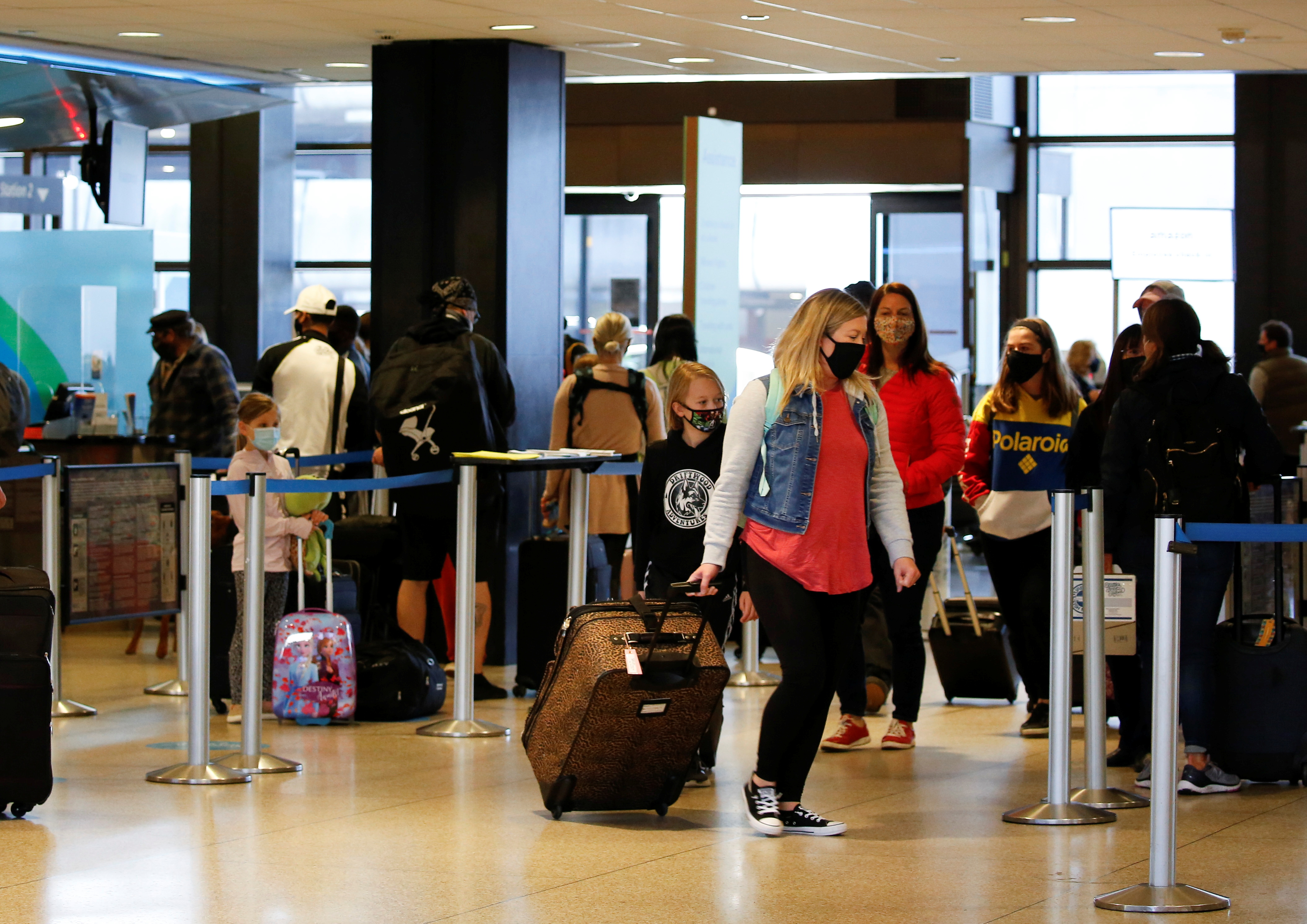
Sign up here.
Reporting by David Shepardson
Our Standards: The Thomson Reuters Trust Principles. New Tab , opens new tab
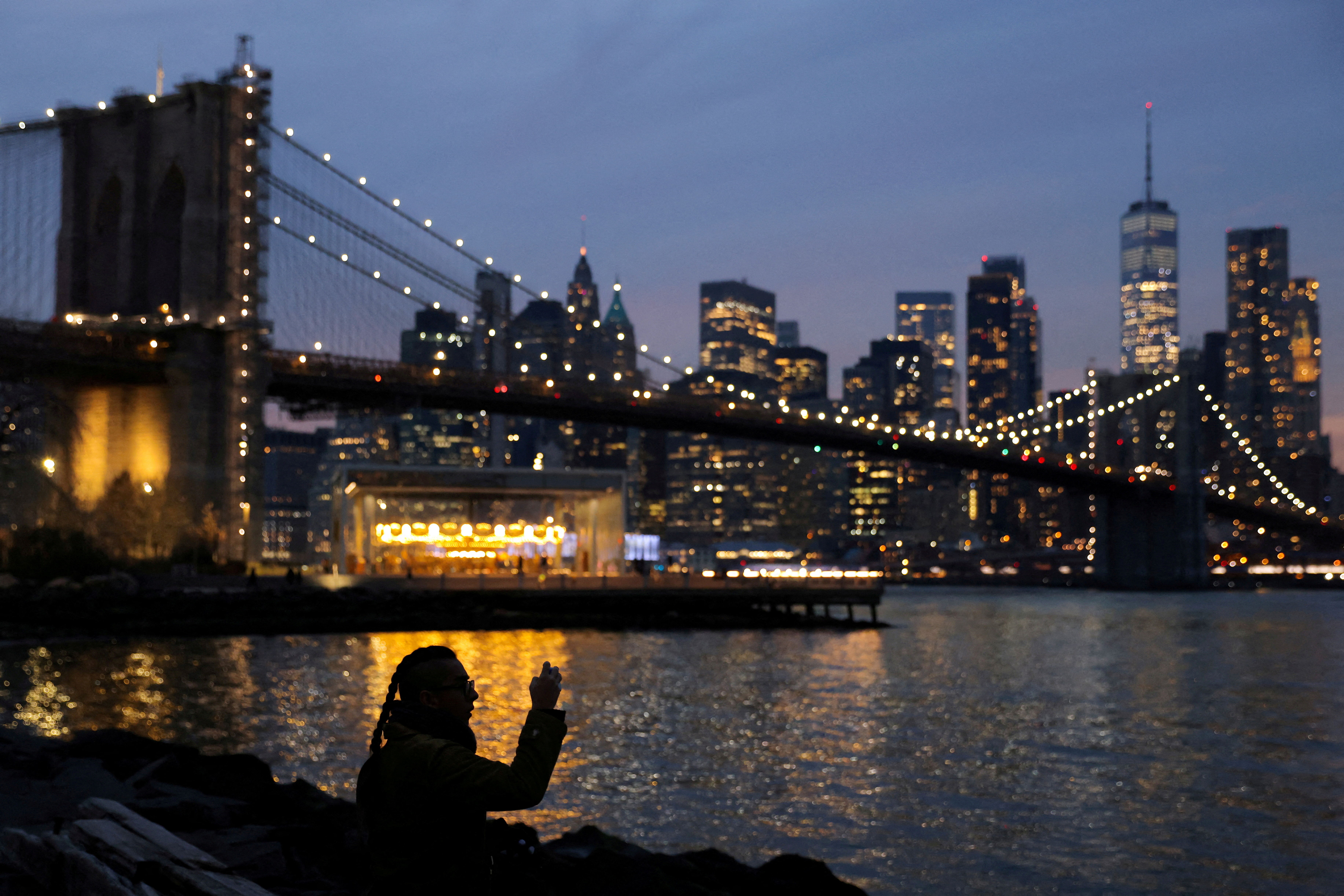
World Chevron
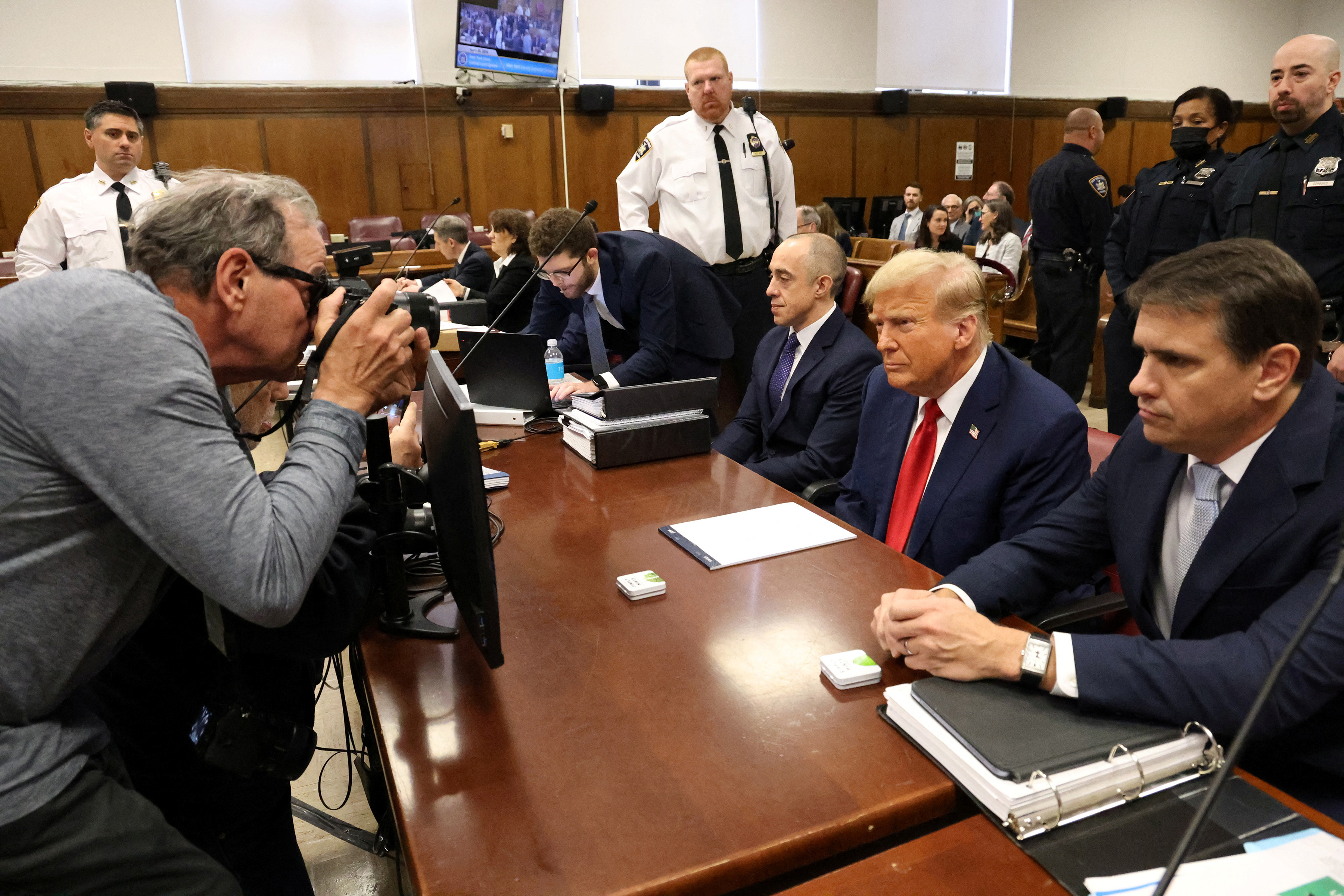
Trump Legal Live Updates: Supreme Court and hush money cases
The Supreme Court heard arguments about Donald Trump's claim of presidential immunity, while former National Enquirer publisher David McDougal testified about ex-Playboy model Karen McDougal.
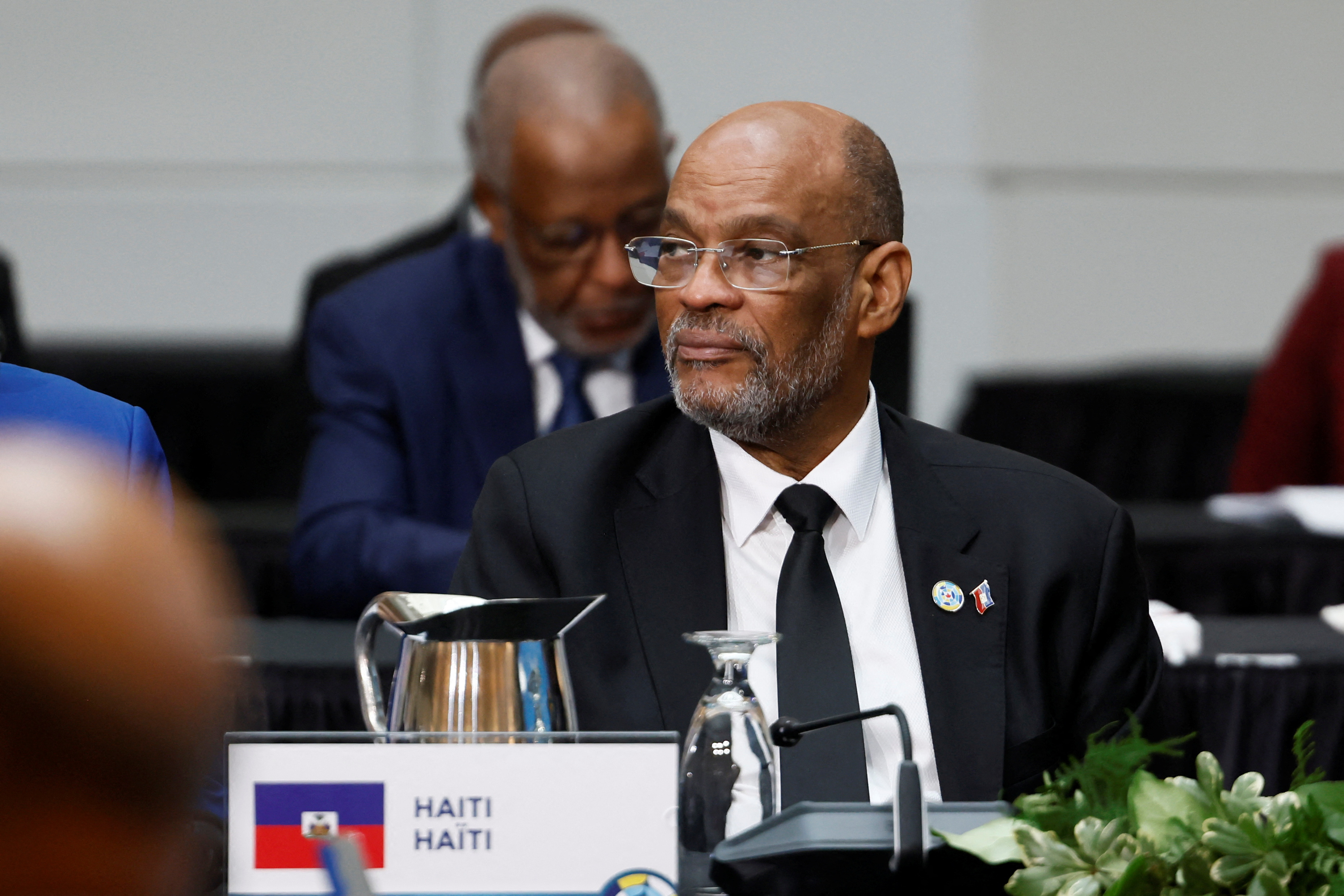
- Skip to main content
- Keyboard shortcuts for audio player

Coronavirus Updates
The coronavirus crisis, u.s. issues more than 115 'do not travel' advisories, citing risks from covid-19.
Bill Chappell

Global travel continues to be risky because of the coronavirus. Earlier this year, passengers from Taiwan wear protective gear as they arrive at France's Charles de Gaulle Airport, and just this week, the U.S. issued over 100 new travel advisories. Francois Mori/AP hide caption
Global travel continues to be risky because of the coronavirus. Earlier this year, passengers from Taiwan wear protective gear as they arrive at France's Charles de Gaulle Airport, and just this week, the U.S. issued over 100 new travel advisories.
The U.S. State Department has vastly expanded its "Do Not Travel list," issuing new Level 4 advisories for more than 115 countries and territories this week. The agency cites "ongoing risks due to the COVID-19 pandemic."
The U.S. Do Not Travel list now includes Canada, Mexico, Germany and the U.K. A Level 3 warning is in place for a smaller group of nations, such as China, Australia and Iceland. Japan is also on the Level 3 list, despite a worrying rise in new coronavirus cases there.
Just a week ago, only 33 countries were on the U.S. Do Not Travel list, according to a cached version of the advisory site . But the State Department warned on Monday that the list would soon include roughly 80% of the world's countries.
More than 150 highest-level travel advisories are in effect — more closely reflecting guidance from the Centers for Disease Control and Prevention, the State Department says.
The CDC's own travel health notices also use a four-tier warning system. For many countries newly added to the State Department's Level 4 list, the CDC cites "a very high level of COVID-19."
As of last week, Brazil and Russia were two of the only large COVID-19 global hotspots on the State Department's most serious warning list. They're now joined by India and virtually all of Europe — places that have seen alarming spikes in new cases.
Bhutan is the only international destination designated as Level 1 — "exercise normal precautions" — on the State Department's travel advisory list.
Sixteen countries are categorized as Level 2 — meaning travelers should exercise increased caution when visiting places such as Thailand, Vietnam, South Korea, Belize and Grenada.
Many of the new or updated Do Not Travel notices cite high levels of coronavirus transmission in the relevant country. But the State Department says it also takes other factors into account, from the availability of coronavirus testing to any travel restrictions the countries might have against U.S. citizens.
In roughly 35 countries or destinations, the CDC says, details about the level of COVID-19 risk are unknown. The health agency urges Americans to avoid traveling to those spots, which include Afghanistan, Nicaragua and the Solomon Islands.
Regardless of a particular country's advisory status, the State Department wants all U.S. citizens to reconsider any travel abroad.
"The COVID-19 pandemic continues to pose unprecedented risks to travelers," the agency said.
More than 3 million people have died from COVID-19 worldwide, according to the World Health Organization . Nearly 144 million coronavirus cases have been reported globally, according to data compiled by Johns Hopkins University .
'Do not travel' list: The US State Department is raising the alert level for most countries due to COVID-19

Travelers researching international trips during the coronavirus pandemic have been confronted with conflicting government advice.
The Centers for Disease Control and Prevention has one system of rating the risks by country, the U.S. State Department another , producing different travel alert levels for the same country in many cases. Mexico, a popular vacation spot with American vacationers this year , is considered a Level 4 by the CDC – meaning avoid all travel – but a L evel 3 by the State Department – meaning "reconsider travel.'' The Bahamas was just raised to a Level 4 by the CDC and is a level 3 on the State Department scale .
The State Department is about to clear up some of that confusion, and the news is not good for travelers pondering a trip abroad.
The State Department on Monday said it was raising the alert level for a significant number of countries this week as it factors the CDC's COVID-19 data more heavily into its rating system.
"As travelers face ongoing risks due to the COVID-19 pandemic, the Department of State will begin updating its travel advisories this week to better reflect the Centers for Disease Control and Prevention’s science-based Travel Health Notices that outline current issues affecting travelers’ health,'' the department said in a statement. "Our advisories also take into account logistical factors, including in-country testing availability and current travel restrictions for U.S. citizens.''
Learn more: Best travel insurance
The agency said about 80% of countries will now carry the "Do not travel'' label, a Level 4.
Today, just 34 of 209 countries, or about 16% are rated a Level 4. Nearly 150 countries, or about 70%, fall into Level 3.
The State Department said the pandemic continues to pose "unprecedented risks'' to travelers: "In light of those risks, the Department of State strongly recommends U.S. citizens reconsider all travel abroad.''
The increased alert level comes as the number of vaccinated Americans is increasing and COVID-19 restrictions are being lifted in many states and in some countries. Iceland, Croatia, Greece and Israel are among the countries welcoming or about to welcome vaccinated Americans.
Have vaccine, will travel : United adds flights to Europe
In early April, the CDC said fully vaccinated Americans can resume domestic and international travel at low risk to themselves. But it noted that international travel poses additional risks given the spread of new COVID-19 variants.
Despite the new guidance for vaccinated travelers, the CDC says, people should stay home.
"CDC is not recommending travel at this time due to the number of rising cases,'' director Rochelle Walensky said at a White House briefing in early April.
Millions of Americans are ignoring the advice, with travel rising steadily this spring, according to Transportation Security Administration screening numbers and optimism about bookings from airline executives.
Global Travel Risk Map
Daily updated risk assessment for all countries.
- World Overview
US urges Americans 'do not travel' to majority of countries amid 'unprecedented' risk
The State Department updated its travel warning system to sync with the CDC's.
The State Department has updated its travel warnings to better reflect the advice from the Centers for Disease Control and Prevention, it said, meaning that as of Tuesday, approximately 80% of countries are now a "Level 4: Do Not Travel" on its advisory.
The agency warned that the coronavirus pandemic "continues to pose unprecedented risks to travelers," even as Americans are increasingly vaccinated and ready to get on a plane .
"In light of those risks, the Department of State strongly recommends U.S. citizens reconsider all travel abroad," it said in a new notice Monday.
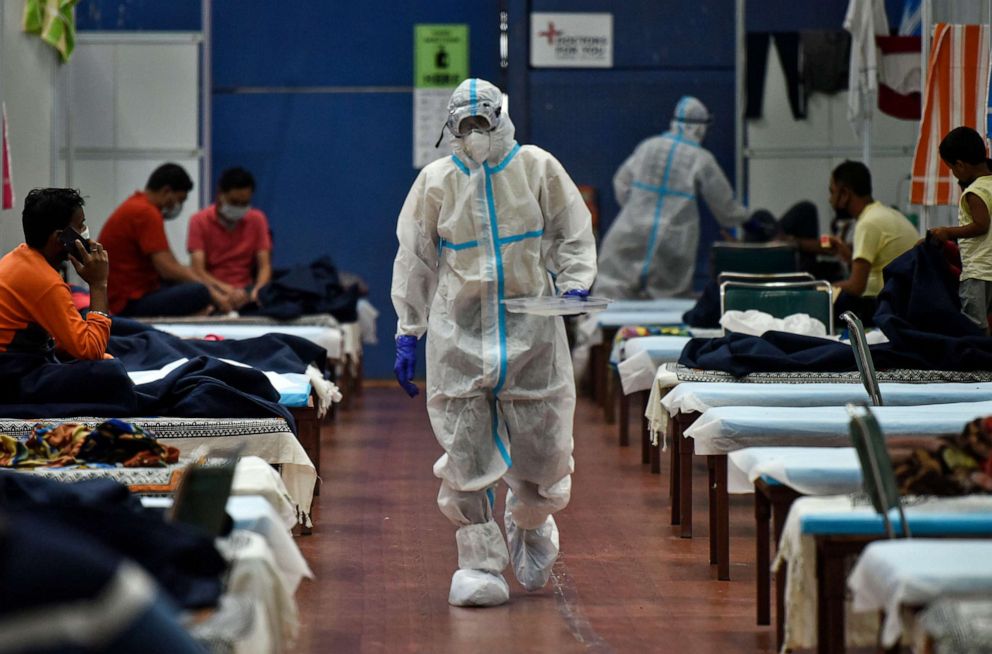
Last year, the department issued a blanket "Level 4: Do Not Travel" advisory, the first of its kind, to urge Americans not to travel overseas as the coronavirus swept around the world. The notice was lifted last August, as the department instead instituted individual notices for every country again, reflecting the local risks from the pandemic and other threats, like terrorism, crime or unrest.
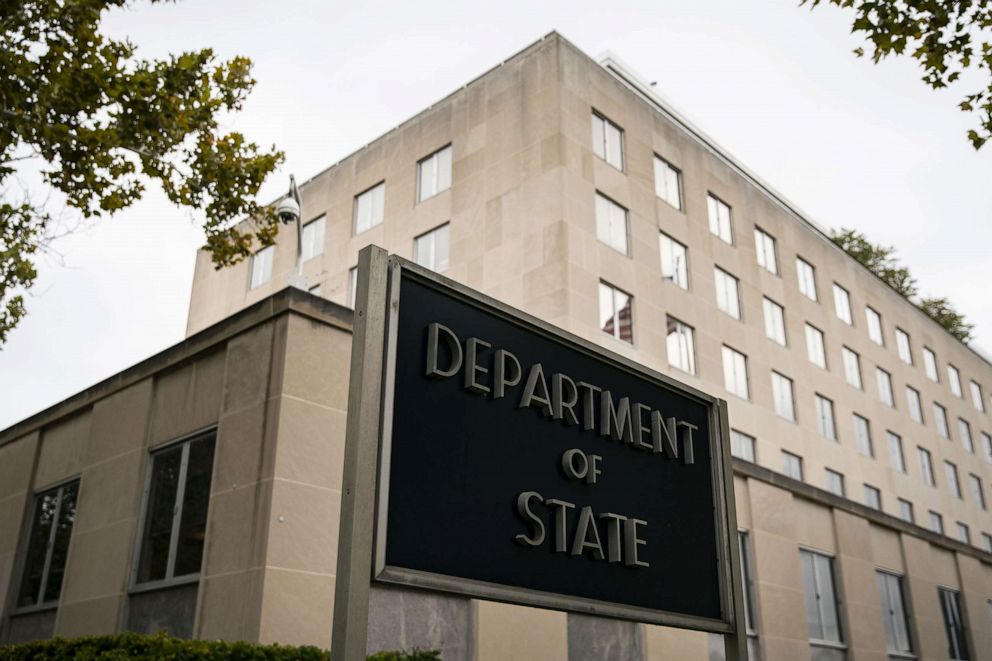
Several countries, such as India, are seeing enormous spikes in cases of COVID-19, and the World Health Organization has reported that the average number of cases reported daily worldwide is now higher than it has ever been.
MORE: What to know about traveling this summer amid the pandemic
But the State Department's new advisories are not because there are spikes in the majority of these countries, it said, but rather an "adjustment" to using the "CDC's existing epidemiological assessments" in each country individually.
Prior to the announcement, just over 16% of countries had a "Level 4: Do Not Travel" warning from the State Department, and most of those were for extreme threats -- ongoing conflict like in Afghanistan or Iraq, bloody unrest like in Myanmar or Haiti, and dangerous regimes like in North Korea or Iran.
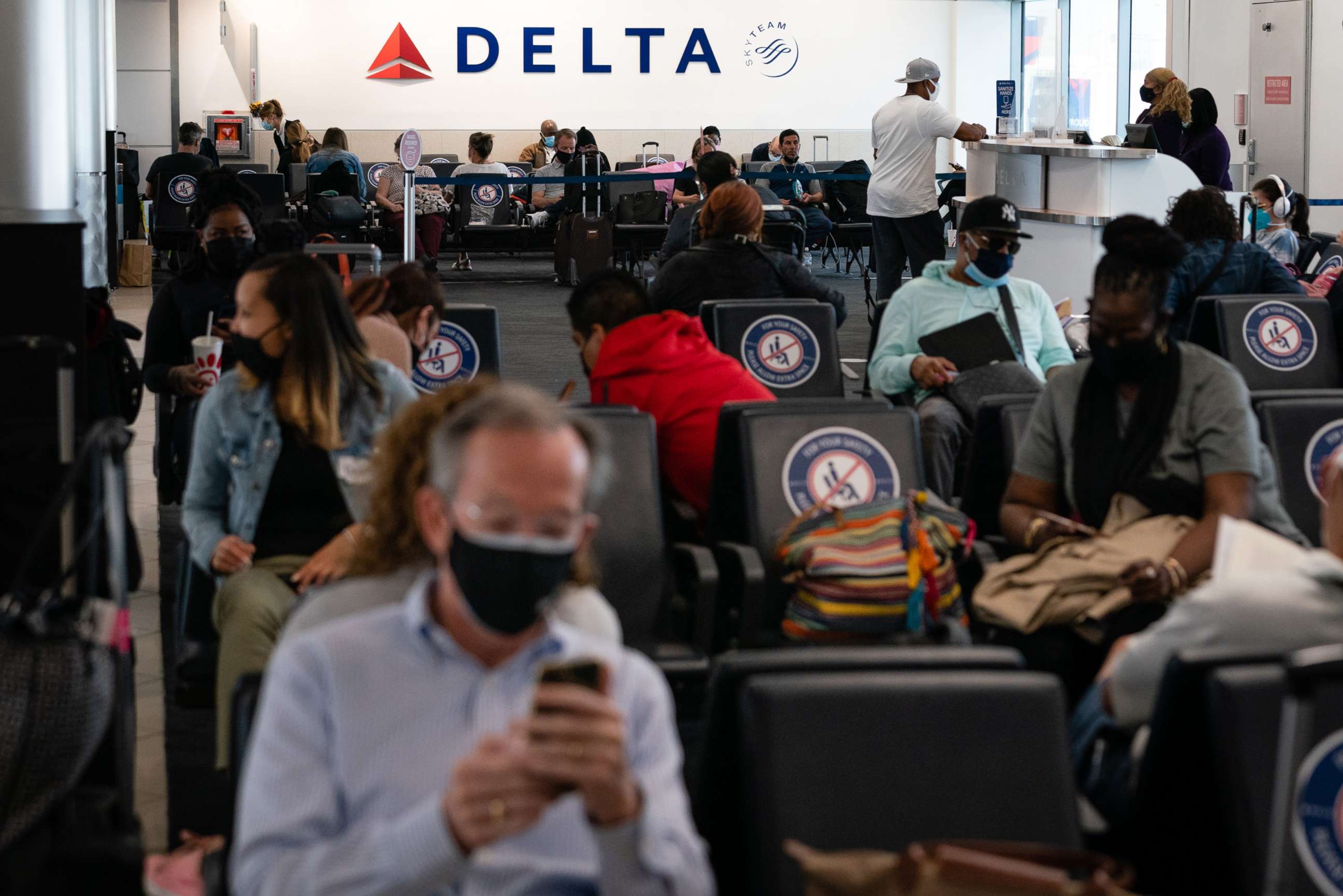
Like the State Department, the CDC has a four-tier system -- launched in November -- that rates the level of COVID-19 cases from low, at Level 1, to very high, at Level 4. Those levels are determined using the number of cases on a per capita basis and the direction of infection rates.
Related Stories

Man kills wife, 3 kids in mass shooting: Police
- Apr 23, 12:35 PM

What witnesses said about Trump, classified docs
- Apr 24, 4:58 PM

OJ Simpson dies at 76
- Apr 11, 6:32 PM
With mounting cases and new variants, the CDC is urging even vaccinated travelers to be cautious.
MORE: Is it safe to fly right now?
"Because of the current situation in India even fully vaccinated travelers may be at risk for getting and spreading COVID-19 variants and should avoid all travel to India," it said in its new notice for India late Monday -- standard language for all countries at its highest-level warning.
All travelers, including U.S. citizens, are currently required to provide a negative COVID-19 test before being able to board a flight to the U.S.
In addition, non-U.S. citizens who have traveled through China, Iran, Brazil, South Africa, the United Kingdom, Ireland and the 26 European countries in the Schengen Area in the prior two weeks are barred from entering the U.S., with certain exceptions, like for spouses or children.
Related Topics
- Coronavirus Economic Impacts

Secret Service prepares for Trump in contempt
- Apr 23, 4:16 PM

Your recycled plastic bags may end up here
- Apr 23, 9:48 PM
ABC News Live
24/7 coverage of breaking news and live events
clock This article was published more than 2 years ago
The CDC’s do not travel list, explained
The agency’s travel advisories can differ from the state department’s. here’s how to make sense of them..

Every Monday, the Centers for Disease Control and Prevention delivers news for travelers — namely, which destinations they should avoid because of covid-19.
The agency has given more than 130 destinations a “Level 4” warning, which signifies that covid-19 is very high and people should avoid travel. Many of those countries, including Mexico, France and Italy, have been added since the World Health Organization declared omicron a “variant of concern” on Nov. 26.
“Travel increases your chance of getting and spreading COVID-19,” CDC spokeswoman Caitlin Shockey said in an email. “You may feel well and not have any symptoms, but you can still spread COVID-19 to others. Staying home is the best way to protect yourself and others from COVID-19.”
At the same time, the State Department issues its own travel advisories , which factor in the CDC’s recommendations but also include other threats such as terrorism, civil unrest, crime and natural disasters.
“The U.S. State Department and CDC’s travel advisories are accurate and up to date,” Abinash Virk, an infectious-disease specialist and former head of the travel clinic at the Mayo Clinic in Minnesota, said in an email. “They are reliable resources and extremely helpful to determine if travel to a certain location will be safe from COVID-19 perspective or not.”
Understanding the State Department’s updated travel advisories
But to navigate all the advice, experts say, travelers must read the details — and understand what the warnings describe.
What are the CDC’s levels?
The CDC has four levels that start at “low” and escalate to “moderate,” “high” and “very high.” A country or territory that does not provide data is categorized as “unknown.” No matter the CDC designation of your destination, the agency says everyone should be fully vaccinated before traveling.
Beyond that, the warnings start to escalate at Level 2, or “moderate” levels of covid-19. When a destination has a Level 2 status, the CDC advises that unvaccinated travelers who are at high risk for severe illness should avoid nonessential travel.
One step up, at Level 3, the CDC says all unvaccinated travelers should avoid nonessential travel. For destinations marked as Level 4 or unknown, the agency says Americans should avoid traveling there altogether.
How are the levels decided?
The CDC’s destination-specific recommendations are based on the number of new cases reported per 100,000 people over the past 28 days.
That metric is more useful than a case count alone because it gives a better idea of someone’s risk of getting infected, said Lise Barnard, a health-intelligence analyst at risk management firm Crisis24 .
“This can be very informative when deciding when to travel, and travel should be reconsidered in countries with a high or very high risk of transmission, or to countries that have a higher risk profile [than] the individual’s country of origin,” Barnard wrote in an email.
People who are especially vulnerable to severe illness should also weigh their own risks, she said, even when traveling to a place that is rated at a lower level.
American tourists are back in Europe, but so are covid restrictions
How are the State Department’s levels different?
Because the State Department’s travel advisories are based in part on CDC assessments, it might put a destination on the same level, also on a scale of 1-4. But it might not. Level 1 means travelers should exercise normal precautions, which graduates to exercising increased caution for Level 2 and reconsidering travel for Level 3. Level 4 means “do not travel.”
“In addition to CDC’s advice, the department also takes into account logistical factors, including in-country testing availability and current restrictions on entry for U.S. citizens, when determining each country’s travel advisory level,” the department said in a statement. “So the department’s travel advisory level may not always match the CDC’s [travel health notice] level.”
Many countries are at a Level 4 according to both the CDC and the State Department, including destinations that are popular with American travelers. The State Department has put France and Mexico, for instance, in the same Level 4 (“Do Not Travel”) category as places that are not travel destinations, such as Iraq and Afghanistan.
Each State Department travel advisory specifies why a country is placed in a given level and what health, safety or security concerns to keep in mind.
“In our travel information, we warn people not to visit certain high-risk countries and areas both because of local conditions and because we are limited in our ability to provide consular services in those places,” the department said.
What are other sources to check?
Virk, of Mayo Clinic, recommended checking country-specific information about covid-19 on the World Health Organization’s website . She also said travelers should talk to a travel medicine expert to help them assess their risks.
“This is particularly important for individuals who have comorbidities that potentially increase the risk of severe COVID-19,” she said in an email.
The State Department publishes broader country information pages in addition to its travel advisories.
Those pages also include links to each embassy’s covid-19 page, which include entry and exit requirements, testing availability, vaccine information, curfews and other pandemic-related information.
What 6 health experts say about traveling amid the delta variant
What are the risks of leaving the U.S.?
Given the state of the pandemic in the United States, where community transmission is high in most counties, travelers might wonder whether traveling abroad is really an increased risk. But experts say there are many reasons to think carefully about going abroad.
“Even if the situation in the U.S. is less than desirable, traveling always poses a risk,” Barnard said. “New variants may emerge and can be transmitted when moving between locations, especially in areas with high transmission, as was observed with the emergence of the delta variant in India.”
And, the CDC says, travel increases the chance of contracting and spreading the virus.
“Travelers need to be aware that they can spread disease at their destination among people who may not have the same access to vaccinations and quality medical care,” the CDC’s Shockey said.
Coronavirus: What you need to know
Covid isolation guidelines: Americans who test positive for the coronavirus no longer need to routinely stay home from work and school for five days under new guidance planned by the Centers for Disease Control and Prevention. The change has raised concerns among medically vulnerable people .
New coronavirus variant: The United States is in the throes of another covid-19 uptick and coronavirus samples detected in wastewater suggests infections could be as rampant as they were last winter. JN.1, the new dominant variant , appears to be especially adept at infecting those who have been vaccinated or previously infected. Here’s how this covid surge compares with earlier spikes .
Latest coronavirus booster: The CDC recommends that anyone 6 months or older gets an updated coronavirus shot , but the vaccine rollout has seen some hiccups , especially for children . Here’s what you need to know about the latest coronavirus vaccines , including when you should get it.

- Today's news
- Reviews and deals
- Climate change
- 2024 election
- Fall allergies
- Health news
- Mental health
- Sexual health
- Family health
- So mini ways
- Unapologetically
- Buying guides
Entertainment
- How to Watch
- My watchlist
- Stock market
- Biden economy
- Personal finance
- Stocks: most active
- Stocks: gainers
- Stocks: losers
- Trending tickers
- World indices
- US Treasury bonds
- Top mutual funds
- Highest open interest
- Highest implied volatility
- Currency converter
- Basic materials
- Communication services
- Consumer cyclical
- Consumer defensive
- Financial services
- Industrials
- Real estate
- Mutual funds
- Credit cards
- Credit card rates
- Balance transfer credit cards
- Business credit cards
- Cash back credit cards
- Rewards credit cards
- Travel credit cards
- Checking accounts
- Online checking accounts
- High-yield savings accounts
- Money market accounts
- Personal loans
- Student loans
- Car insurance
- Home buying
- Options pit
- Investment ideas
- Research reports
- Fantasy football
- Pro Pick 'Em
- College Pick 'Em
- Fantasy baseball
- Fantasy hockey
- Fantasy basketball
- Download the app
- Daily fantasy
- Scores and schedules
- GameChannel
- World Baseball Classic
- Premier League
- CONCACAF League
- Champions League
- Motorsports
- Horse racing
- Newsletters
New on Yahoo
- Privacy Dashboard
David Pecker returns to witness stand in Trump's hush money trial
This map shows where americans are being told 'do not travel' in mexico.
The State Department issued new travel warnings for parts of Mexico on Wednesday, advising American travelers to entirely avoid five regions due to crime.
The advisory tells Americans “do not travel” to the five Mexican coastal states of Sinaloa, Colima, Michoacán, Guerrero, and Tamaulipas. It also suggests exercising “increased caution” or “reconsider travel” to other parts of the country.
Here’s a map of Mexico’s five states the U.S. deemed most dangerous, as well as the general warnings across the rest of the country. The State Department gave Mexico a level 2 travel warning overall, encouraging travelers to exercise increased caution in general.
“Violent crime, such as homicide, kidnapping, carjacking, and robbery, is widespread,” the advisory states.
The latest advisory gives the five Mexican states the same warning level as risky travel destinations like Syria, Yemen and Somalia.
Recommended Stories
Based on the odds, here's what the top 10 picks of the nfl draft will be.
What would a mock draft look like using just betting odds?
Broncos, Jets, Lions and Texans have new uniforms. Let's rank them
Which new uniforms are winners this season?
Jamie Dimon is worried the US economy is headed back to the 1970s
JPMorgan's CEO is concerned the US economy could be in for a repeat of the stagflation that hampered the country during the 1970s.
Luka makes Clippers look old, Suns are in big trouble & a funeral for Lakers | Good Word with Goodwill
Vincent Goodwill and Tom Haberstroh break down last night’s NBA Playoffs action and preview several games for tonight and tomorrow.
These are the cars being discontinued for 2024 and beyond
As automakers shift to EVs, trim the fat on their lineups and cull slow-selling models, these are the vehicles we expect to die off soon.
Dave McCarty, player on 2004 Red Sox championship team, dies 1 week after team's reunion
The Red Sox were already mourning the loss of Tim Wakefield from that 2004 team.
Everyone's still talking about the 'SNL' Beavis and Butt-Head sketch. Cast members and experts explain why it's an instant classic.
Ryan Gosling, who starred in the skit, couldn't keep a straight face — and neither could some of the "Saturday Night Live" cast.
Ryan Garcia drops Devin Haney 3 times en route to stunning upset
The 25-year-old labeled "mentally fragile" by many delivered the upset for the ages.
WNBA Draft winners and losers: As you may have guessed, the Fever did pretty well. The Liberty? Perhaps not
Here are five franchises who stood out, for better or for worse.
Arch Manning dominates in the Texas spring game, and Jaden Rashada enters the transfer portal
Dan Wetzel, Ross Dellenger & SI’s Pat Forde react to the huge performance this weekend by Texas QB Arch Manning, Michigan and Notre Dame's spring games, Jaden Rashada entering the transfer portal, and more
Chiefs make Andy Reid NFL's highest-paid coach, sign president Mark Donovan, GM Brett Veach to extensions
Reid's deal reportedly runs through 2029 and makes him the highest-paid coach in the NFL.
Yankees' Nestor Cortés told by MLB his pump-fake pitch is illegal
Cortés' attempt didn't fool Andrés Giménez, who fouled off the pitch.
Here’s when people think old age begins — and why experts think it’s starting later
People's definition of "old age" is older than it used to be, new research suggests.
Donald Trump nabs additional $1.2 billion 'earnout' bonus from DJT stock
Trump is entitled to an additional 36 million shares if the company's share price trades above $17.50 "for twenty out of any thirty trading days" over the next three years.
Retirement confidence in the US ticks up; new rule for financial advisers is set to start
Two-thirds of Americans reported that they feel confident they have enough money for a comfortable retirement, up a notch from last year.
2024 NFL mock draft: With one major trade-up, it's a QB party in the top 5
Our final 2024 mock draft projects four quarterbacks in the first five picks, but the Cardinals at No. 4 might represent the key pivot point of the entire board.
Oakland University outfielders combine to make spectacular catch vs. Northern Kentucky
Oakland University outfielders John Lauinger and Reggie Bussey combined on what could be college baseball's best catch of the 2024 season against Northern Kentucky.

GDP: US economy grows at 1.6% annual pace in first quarter, falling short of estimates while inflation increases
The reading of first quarter economic growth comes at a crucial time as investors digest the potential impacts of the Fed holding interest rates higher for longer.
Dylan Edwards set to be latest Colorado running back to enter transfer portal
All four rushers who had more than 10 carries in 2023 for the Buffaloes are transferring.
NBA Playoffs: Lillard sinks the Pacers, Celtics-Heat controversy, plus injury concerns for Kawhi & Embiid
Vincent Goodwill and Amin Elhassan react to (just about) every Round 1 game of the NBA Playoffs after the first games have been played over the weekend.

The CDC Has a New “Do Not Travel” Advisory System
Under the new system, countries will be placed on the agency’s level 4 “do not travel” list only if there are extreme pandemic-related health concerns..
- Copy Link copied

On April 20, no countries were designated a Level 4 on the new list.
Courtesy of CDC
Just last week, there were 89 countries on the U.S. Centers for Disease Control and Prevention’s (CDC’s) Level 4 “Do Not Travel” advisory list . Today, there are none. So, what changed from one week to the next? Did 89 countries suddenly become less of a risk for travelers? Not necessarily.
As of April 18, the CDC has changed how it classifies international destinations under its COVID travel advisory system.
“To help the public understand when the highest level of concern is most urgent, this new system will reserve Level 4 travel health notices for special circumstances, such as rapidly escalating case trajectory or extremely high case counts, emergence of a new variant of concern, or healthcare infrastructure collapse,” the CDC said in a statement about the new classifications.
Whereas now Level 4 is deemed “Special Circumstances/Do Not Travel,” previously Level 4 simply indicated a “very high level of COVID-19,” and came with the advice to avoid travel to the destination. This encompassed countries that surpassed certain thresholds for new counts of cases and upward case trajectories.
This new advisory system makes it easier for travelers to assess the most critical pandemic-related concerns around the world. When a multitude of countries is deemed “high risk,” that can either deter travelers from international travel completely or can turn them off from an advisory system that paints the world in broad brushstrokes of risk.
“With this new configuration, travelers will have a more actionable alert for when they should not travel to a certain destination (Level 4), regardless of vaccination status, until we have a clearer understanding of the COVID-19 situation at that destination,” the CDC stated.
Each week, the CDC releases its updated travel health notices and corresponding map, and in recent weeks the number of countries deemed Level 4 or “do not travel” had included the vast majority of countries in the world—in early February 140 countries were on the Level 4 or “do not travel” list. This week, under the new classification system, there are no countries with a Level 4 designation, and there are 122 countries and territories that fall under the Level 3 or “COVID-19: High” list.
Levels 1, 2, and 3, represent incidents of COVID-19 that are “low,” “medium,” and “high,” respectively. There are also several countries marked as “level unkown,” which are designated in gray on the map. Knowing these designations can help travelers make informed decisions about where they feel comfortable traveling and any additional precautions they may want to take before, during, or after their travels. For all levels, the CDC recommends that travelers are up to date on their COVID-19 vaccines, but does not recommend avoiding travel there, which means there is currently nowhere in the world the CDC deems unsafe to travel to in the context of the pandemic.
This advisory system is separate from individual country requirements for travelers that are issued by each government, which have had a tendency to fluctuate often throughout the pandemic as COVID cases have risen and fallen.
The U.S. State Department uses a similar four-level travel advisory system, but the State Department’s travel advisories take into account many additional safety factors beyond public health issues, including threat of war, violence, and other humanitarian and natural crises.
>> Next: Is Europe Travel Safe During Russia’s Invasion of Ukraine?

This Map Shows Where Americans Are Being Told ‘Do Not Travel’ in Mexico
T he State Department issued new travel warnings for parts of Mexico on Wednesday, advising American travelers to entirely avoid five regions due to crime.
The advisory tells Americans “do not travel” to the five Mexican coastal states of Sinaloa, Colima, Michoacán, Guerrero, and Tamaulipas. It also suggests exercising “increased caution” or “reconsider travel” to other parts of the country.
Here’s a map of Mexico’s five states the U.S. deemed most dangerous, as well as the general warnings across the rest of the country. The State Department gave Mexico a level 2 travel warning overall, encouraging travelers to exercise increased caution in general.
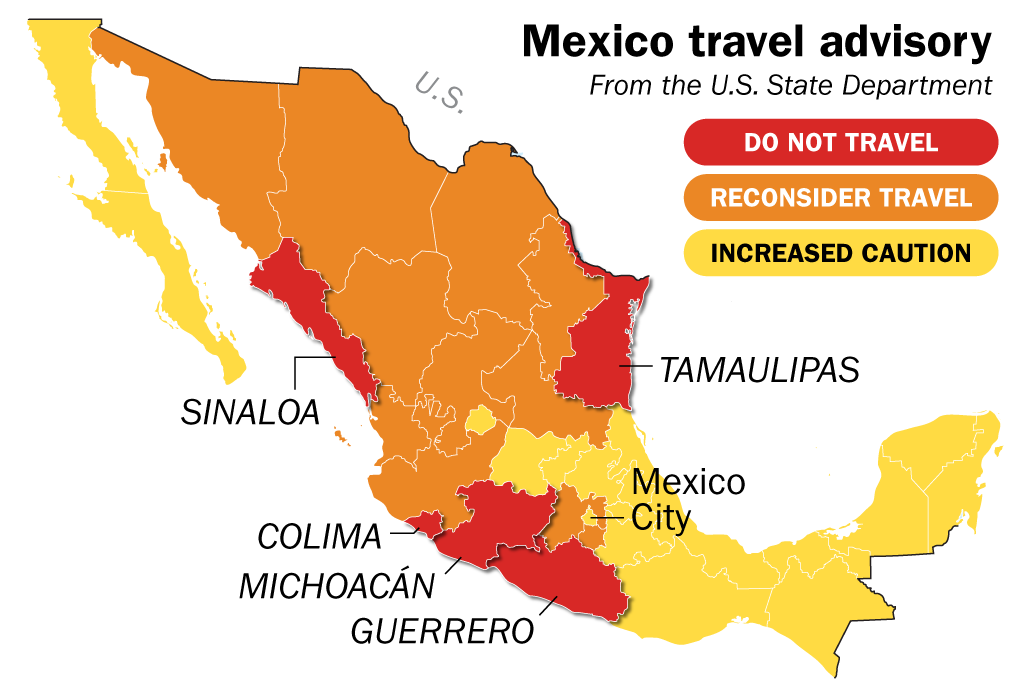
“Violent crime, such as homicide, kidnapping, carjacking, and robbery, is widespread,” the advisory states.
The latest advisory gives the five Mexican states the same warning level as risky travel destinations like Syria, Yemen and Somalia.
More Must-Reads From TIME
- The 100 Most Influential People of 2024
- Coco Gauff Is Playing for Herself Now
- Scenes From Pro-Palestinian Encampments Across U.S. Universities
- 6 Compliments That Land Every Time
- If You're Dating Right Now , You're Brave: Column
- The AI That Could Heal a Divided Internet
- Fallout Is a Brilliant Model for the Future of Video Game Adaptations
- Want Weekly Recs on What to Watch, Read, and More? Sign Up for Worth Your Time
Write to Julia Zorthian at [email protected] and Lon Tweeten at [email protected]
Travel | Mexico danger map: Six states under ‘do not…
Share this:.
- Click to share on Facebook (Opens in new window)
- Click to share on Twitter (Opens in new window)
- Click to print (Opens in new window)
- Click to email a link to a friend (Opens in new window)
- Click to share on Reddit (Opens in new window)
Today's e-Edition
Things To Do
- Food & Drink
- Celebrities
- Pets & Animals
- Event Calendar
Breaking News
Travel | san jose-based solar-power firm cutting 1,000 workers, travel | mexico danger map: six states under ‘do not travel’ warning.
Amid announcements of new safety concerns in Mexico at the start of 2023, the official U.S. State Department travel advisories remained as they had been for several months, with six states in the “do not travel” classification.
The map above shows the advisory level for each Mexican state.
Level 4 : The six states with the “do not travel” advisory, because of kidnappings and other crimes, are the northern border state of Tamaulipas, the central state of Zacatecas and the Pacific coast states of Sinaloa, Colima, Michoacán and Guerrero.
Level 3 : The seven states for which visitors are advised to “reconsider travel” because of crime are Baja California (Norte), Sonora, Chihuahua, Durango, Guanajuato, Jalisco and Morelos.
Level 2 : Except for the two Level 1 states, travelers to all the rest are advised to “exercise increased caution.” They are: Aguascalientes, Baja California Sur, Chiapas, Coahuila, Hidalgo, state of Mexico, Nayarit, Nuevo Leon, Oaxaca, Puebla, Queretara, Quintana Roo, San Luis Potosi, Tabasco, Tlaxcala and Veracruz. Mexico City (Distrito Federal) is Level 2.
Level 1: The State Department advises “normal precautions” when traveling to Campeche or Yucatán, shown in green.
In addition to the general tourist warnings, specific prohibitions are issued to U.S. government employees staying or traveling in Mexico. The State Department advises that all U.S. travelers adhere to those rules.
On Jan. 12, 2023, Mexico City’s mayor announced that more than 6,000 National Guard officers would be posted in the city’s subway system after a series of accidents that officials said could be due to sabotage. The previous week, in-person services were suspended at the U.S. Consular Agency in Mazatlán because of violence across Sinaloa .
Click here for the full document on the warnings.
- Report an error
- Policies and Standards
More in Travel

Travel | California wants to crack down on airport line-skipping for Clear members

SUBSCRIBER ONLY
Environment | $32m in upgrades renovate famed yosemite waterfall area, build new visitor center.

Transportation | Big Sur Highway 1 repair work hitting its stride

Entertainment | Disneyland adds another potential themed land to the mix: Encanto
We’re sorry, this site is currently experiencing technical difficulties. Please try again in a few moments. Exception: request blocked
Update April 12, 2024
Information for u.s. citizens in the middle east.
- Travel Advisories |
- Contact Us |
- MyTravelGov |
Find U.S. Embassies & Consulates
Travel.state.gov, congressional liaison, special issuance agency, u.s. passports, international travel, intercountry adoption, international parental child abduction, records and authentications, popular links, travel advisories, mytravelgov, stay connected, legal resources, legal information, info for u.s. law enforcement, replace or certify documents.
Share this page:
The Bahamas Travel Advisory
Travel advisory january 26, 2024, the bahamas - level 2: exercise increased caution.
Updated with additional water safety information.
Exercise increased caution in The Bahamas due to crime .
Country Summary : The majority of crime occurs on New Providence (Nassau) and Grand Bahama (Freeport) islands. In Nassau, practice increased vigilance in the “Over the Hill” area (south of Shirley Street) where gang-on-gang violence has resulted in a high homicide rate primarily affecting the local population. Violent crime, such as burglaries, armed robberies, and sexual assaults, occur in both tourist and non-tourist areas. Be vigilant when staying at short-term vacation rental properties where private security companies do not have a presence.
Activities involving commercial recreational watercraft, including water tours, are not consistently regulated. Watercraft may be poorly maintained, and some operators may not have safety certifications. Always review and heed local weather and marine alerts before engaging in water-based activities. Commercial watercraft operators have discretion to operate their vessels regardless of weather forecasts; injuries and fatalities have occurred. Due to these safety concerns, U.S. government personnel are not permitted to use independently operated jet-ski rentals on New Providence and Paradise Islands.
Never swim alone, regardless of your age or level of swimming skills. Keep within your fitness and swimming capabilities. Be mindful of sharks when swimming and engaging in water activities, as there have been recent fatal and non-fatal incidents involving sharks. Be aware of weather and water conditions and heed local warnings.
Read the country information page for additional information on travel to The Bahamas.
If you decide to travel to The Bahamas:
- Do not answer your door at your hotel/residence unless you know who it is.
- Do not physically resist any robbery attempt.
- Enroll in the Smart Traveler Enrollment Program (STEP) to receive Alerts and make it easier to locate you in an emergency.
- Follow the Department of State on Facebook , Twitter , and Instagram .
- Review the Country Security Report for The Bahamas.
- Prepare a contingency plan for emergency and medical situations. Review the Traveler’s Checklist .
- Visit the CDC page for the latest Travel Health Information related to your travel.
Travel Advisory Levels
Assistance for u.s. citizens, bahamas map, search for travel advisories, external link.
You are about to leave travel.state.gov for an external website that is not maintained by the U.S. Department of State.
Links to external websites are provided as a convenience and should not be construed as an endorsement by the U.S. Department of State of the views or products contained therein. If you wish to remain on travel.state.gov, click the "cancel" message.
You are about to visit:
US issues 'do not travel' warning for Mexico
Us issues travel warnings for parts of mexico.
The map is color-graded to inform travelers about areas they should be taking precaution in while visiting the country.
The federal government has issued travel advisories for parts of Mexico as many Americans prepare to take their spring break vacations.
This comes after the FBI announced four U.S. citizens were kidnapped after gunmen opened fire on their vehicle in the northern Mexico border city of Matamoros. Two of the Americans were killed, and the other two found alive after the violent shootout and abduction that was captured on video.
A relative of one of the victims said the four had traveled together from the Carolinas, entering from Brownsville, Texas, so one of them could get a tummy tuck from a doctor in Matamoros, where Friday’s kidnapping took place. The FBI said that the vehicle came under fire shortly after it entered Mexico.
RELATED: US issues 'do not travel' warning for Mexico
2 missing Americans kidnapped in Mexico found dead and 2 alive, official says
Two of four Americans abducted in Mexico last week when their van was caught in a shootout were found dead, a top Mexican official said Tuesday. The two others have been found alive, with one wounded.
Different colors on the map are explained below:
- Areas on the map marked in red are under a firm "do not travel" advisory.
- Areas in orange are classified as places where vacationers should "reconsider travel."
- The parts of the map with lines running through them are areas with a higher security risk.
- Areas on the map marked in yellow are areas the government advises travelers to "exercise increased caution."
If you would like to take a closer look at the map, click here .
- Credit cards
- View all credit cards
- Banking guide
- Loans guide
- Insurance guide
- Personal finance
- View all personal finance
- Small business
- Small business guide
- View all taxes
You’re our first priority. Every time.
We believe everyone should be able to make financial decisions with confidence. And while our site doesn’t feature every company or financial product available on the market, we’re proud that the guidance we offer, the information we provide and the tools we create are objective, independent, straightforward — and free.
So how do we make money? Our partners compensate us. This may influence which products we review and write about (and where those products appear on the site), but it in no way affects our recommendations or advice, which are grounded in thousands of hours of research. Our partners cannot pay us to guarantee favorable reviews of their products or services. Here is a list of our partners .
Where Americans Are Traveling in 2024: By the Numbers

Many or all of the products featured here are from our partners who compensate us. This influences which products we write about and where and how the product appears on a page. However, this does not influence our evaluations. Our opinions are our own. Here is a list of our partners and here's how we make money .
Americans are traveling abroad in droves.
The number of U.S. citizens flying to international destinations reached nearly 6.5 million passengers in March, according to the International Trade Administration. That’s the highest March total in over five years and shows that the post-pandemic “revenge travel” trend is the new normal.
It wasn’t just March, which usually sees a spike in international departures for spring break. In every month of 2024 so far, more Americans left the country than last year and 2019. These trends point to a blockbuster summer for overseas travel.
Nearly half of Americans (45%) plan to travel by air and/or stay in a hotel this summer and expect to spend $3,594 on average, on these expenses, according to a survey of 2,000 U.S. adults, conducted online by The Harris Poll and commissioned by NerdWallet.
That's despite rising travel prices that have caused some hesitancy among would-be travelers. About 22% of those choosing not to travel this summer cite inflation making travel too expensive as a reason for staying home, according to the poll.
So where are traveling Americans going? And what does it mean for those looking to avoid crowds of tourists and higher travel prices?
New travel patterns
Nearly every region in the world saw an increase in U.S. visitors in March 2024 compared with March 2023, according to International Trade Administration data. Only the Middle East saw a decline of 9%. Yet not every region saw the same year-over-year bump. U.S. visitors to Asia saw a 33% jump, while Oceania and Central America each saw a 30% increase.
Comparing 2024 with 2023 only tells part of the story, however. The new patterns really emerge when comparing international travel trends to 2019. For example, Central America received 50% more U.S. visitors in March 2024 compared with March 2019. Nearly 1.5 million Americans visited Mexico, up 39% compared with before the pandemic. That’s almost as many visitors as the entire continent of Europe, which has seen a more modest 10% increase since 2019.
Only Canada and Oceania saw fewer visitors in March 2024 than in 2019, suggesting that interest in these locations has not rebounded. Indeed, the trends indicate a kind of tourism inertia from COVID-19 pandemic-era lockdowns: Those destinations that were more open to U.S. visitors during the pandemic, such as Mexico, have remained popular, while those that were closed, such as Australia, have fallen off travelers’ radars.
Price pressures
How these trends play out throughout the rest of the year will depend on a host of factors. Yet, none will likely prove more important than affordability. After months of steadiness, the cost of travel, including airfare, hotels and rental cars, has begun to sneak up again.
About 45% of U.S. travelers say cost is their main consideration when planning their summer vacation, according to a survey of 2,000 Americans by the travel booking platform Skyscanner.
That’s likely to weigh further on U.S. travelers’ appetite for visiting expensive destinations such as Europe, while encouraging travel to budget-friendly countries. It could also depress overall international travel as well, yet so far, Americans seem to be traveling more.
For those looking to avoid crowds while maintaining a budget, Skyscanner travel trends expert Laura Lindsay offered a recommendation many of us might need help finding on a map.
“Albania has been on the radar of travelers looking for something different,” Lindsay said. "Most people have yet to discover it, but flights and tourism infrastructure are in place, and there are fewer crowds in comparison to trending European destinations like Italy, Greece, or Portugal.”
On the flip side, American travelers looking to avoid crowds of compatriots would do well to avoid Japan, which has seen a staggering 50% increase in U.S. tourists between March 2019 and 2024.
How to maximize your rewards
You want a travel credit card that prioritizes what’s important to you. Here are our picks for the best travel credit cards of 2024 , including those best for:
Flexibility, point transfers and a large bonus: Chase Sapphire Preferred® Card
No annual fee: Bank of America® Travel Rewards credit card
Flat-rate travel rewards: Capital One Venture Rewards Credit Card
Bonus travel rewards and high-end perks: Chase Sapphire Reserve®
Luxury perks: The Platinum Card® from American Express
Business travelers: Ink Business Preferred® Credit Card
On a similar note...

US tourists face 12 years in prison for accidentally bringing ammo to Caribbean island
The u.s. state department is warning travelers about strict new laws in turks and caicos islands that carry a mandatory minimum sentence of 12 years for bringing guns or ammunition to the island: "if you bring a firearm or ammunition into tci, even inadvertently, we will not be able to secure your release from custody", by leslie gaydos • published april 23, 2024 • updated on april 24, 2024 at 5:42 pm.
An Oklahoma woman was reunited Tuesday with her young children after being detained for almost two weeks in Turks and Caicos Islands for allegedly violating their strict guns and ammunition law. Her husband is being held in the British Overseas Territory near the Bahamas.
Ryan and Valerie Watson, who live in Oklahoma, left for Turks and Caicos Islands on April 7 to celebrate the 40th birthdays of Ryan and two friends. When they went through security for their return flight, their carry-on was flagged and searched and officials found a Ziploc bag of bullets.
"They were hunting ammunition rounds that I use for whitetail deer," said Ryan, "and I recognized them and I thought, oh man, what a bonehead mistake that I had no idea that those were in there."
The two shared their story virtually with NBC10 Boston last week before their first court hearing. They were stuck on the island, their passports confiscated, separated from their young son and daughter.
Get Boston local news, weather forecasts, lifestyle and entertainment stories to your inbox. Sign up for NBC Boston’s newsletters.
"When I heard that, I immediately was terrified because I was like, we can't both be in prison for 12 years. We have kids at home. And this is such an innocent mistake that we didn't even know we weren't– we didn't even know it was there. So yeah, my immediate thought was our kids and them being, you know, parentless for, for that long," Valerie said.
The Watsons were questioned and charged with possession of ammunition. In 2022, Turks and Caicos passed an amendment with stiffer penalties for possession of weapons or ammunition, increasing the mandatory minimum prison sentence to 12 years.
This is something that we may never recover from Ryan Watson, American tourist charged with possession of ammunition in Turks and Caicos Islands
Responding to your consumer needs and connecting you to your money.
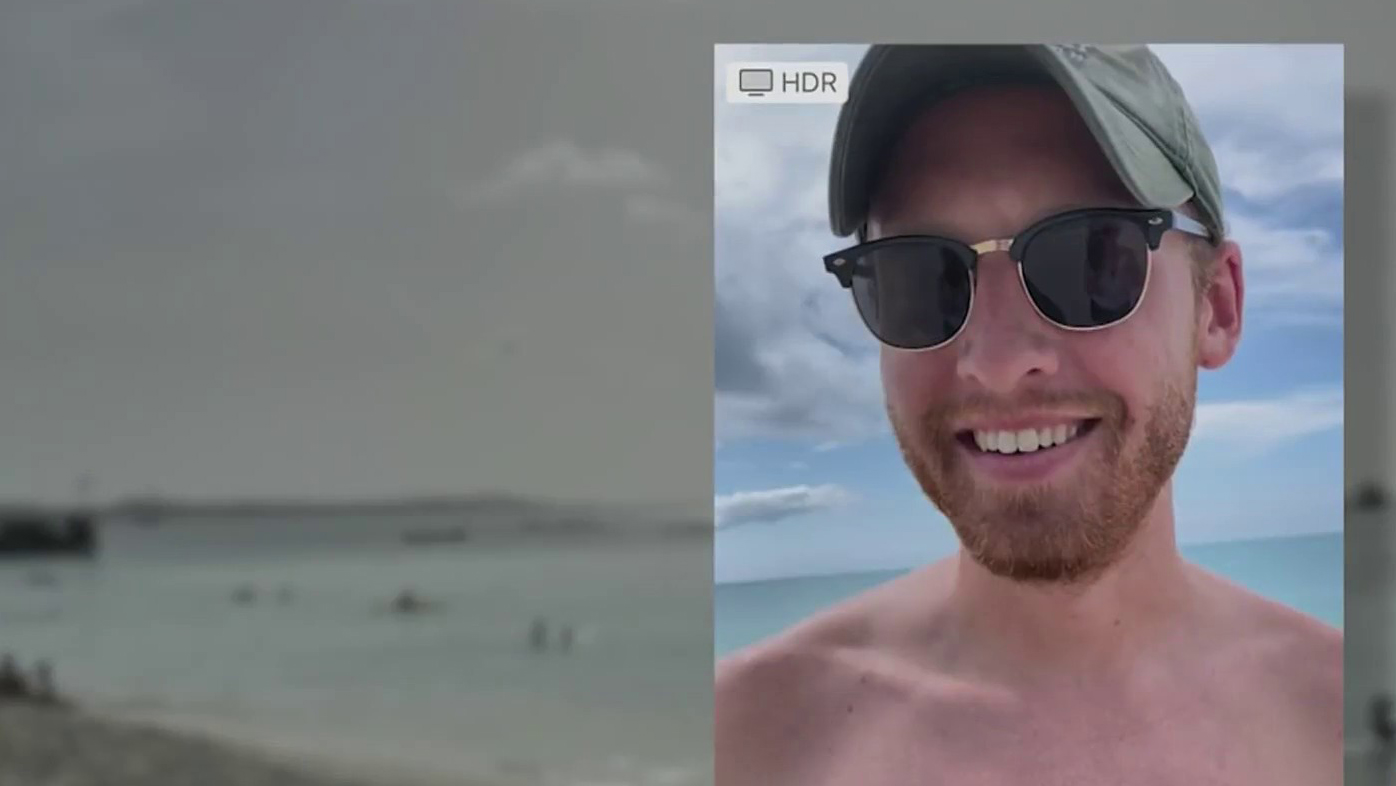
Mother's warning after son's 8-month Turks and Caicos prison sentence: ‘It's not behind us'
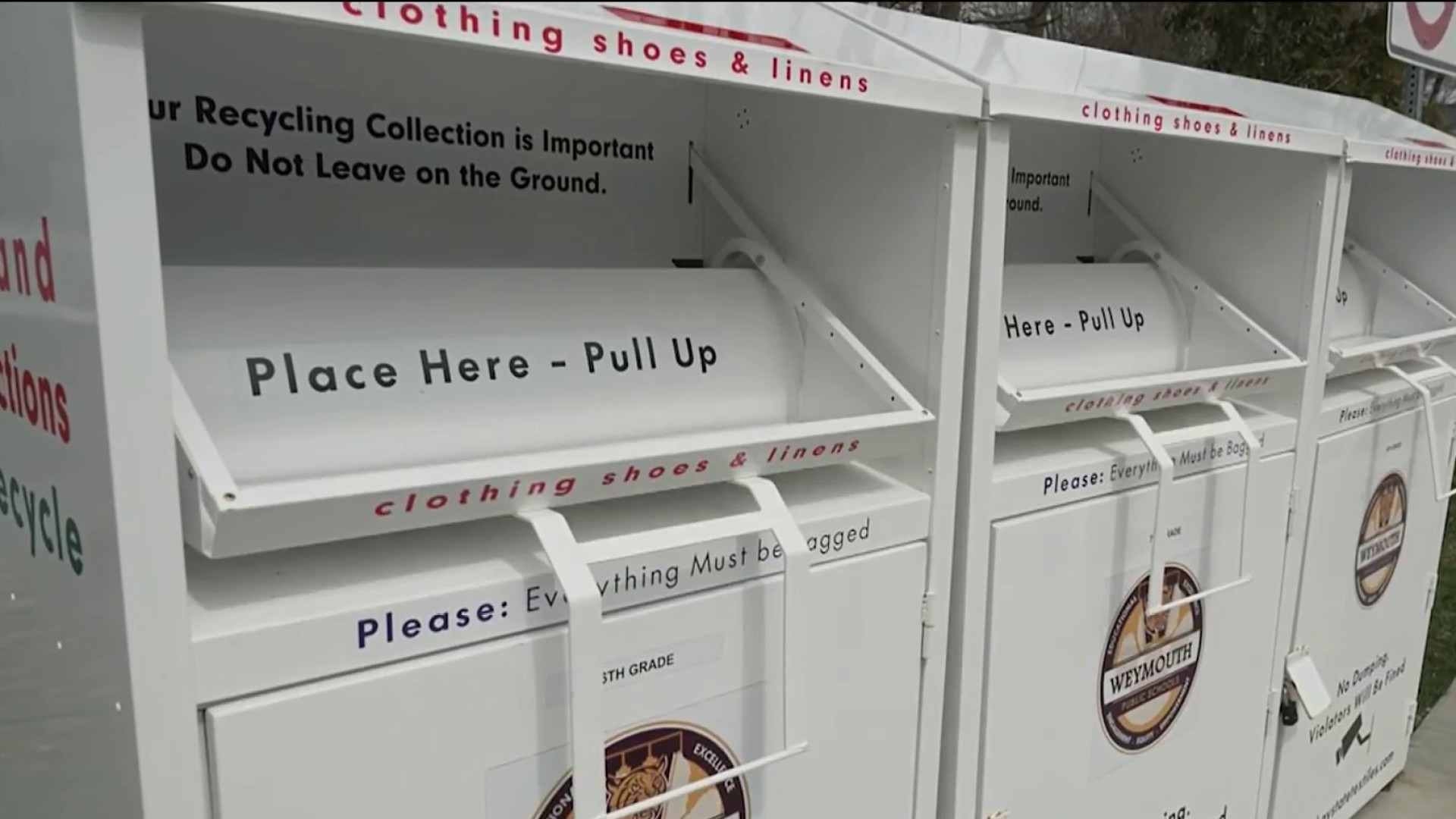
Green ways to get rid of your unwanted clothes and textiles
Last September, the U.S. Embassy in the Bahamas issued a travel alert warning Americans after a tourist from Indiana got an eight-month prison sentence for possession of ammunition.
The alert says: "We wish to remind all travelers that declaring a weapon in your luggage with an airline carrier does not grant permission to bring the weapon into TCI [Turks and Caicos Islands] and will result in your arrest.
"We strongly encourage you to carefully check your luggage for stray ammunition or forgotten weapons before departing for TCI. If you bring a firearm or ammunition into TCI, we will not be able to secure your release from custody. You are subject to TCI laws and must follow local law enforcement procedures," the alert continued.
Bryan Hagerich was detained by Turks and Caicos authorities after a family vacation in February when hunting ammunition was found in his luggage before he boarded a flight home. He said the ammunition was found in a bag he frequently used for weekend hunting trips.
"I've been here for almost 70 days now after posting bail. I've been out, right now just waiting to go to the hearing. That's where my case would be heard, then following that would be sentencing," Hagerich said.
Hagerich, who played baseball professionally and was once drafted by the Florida Marlins, lives in Pennsylvania with his wife and two young kids. He spent eight days in prison before posting bail and is awaiting a May 3 court hearing.
"It's incredibly scary. You know, you just don't know what the next day may bring. You know, what path this may take. You know, you're in a completely different culture, a different country by yourself. You know, it's certainly a lot different than packing your bags and going away with your family for a few days. It's been the worst 70 days of my life," Hagerich said.
Sign up for our Breaking newsletter to get the most urgent news stories in your inbox.
He and the Watsons are also dealing with the financial strain of paying for an extended stay and being away from their jobs.
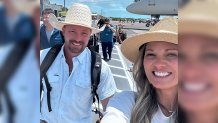
"We've already talked, and we're like, what if, you know, what if we lose our house? Which, when we moved to Oklahoma, we built a home that we thought was our forever home. And to think that this is going to ruin us..." said an emotional Valerie.
"This is something that we may never recover from," Ryan said.
"I'm just very anxious, eager to get home to my family," said Hagerich. "This has been too long. You know, it's just had so much irreparable harm to my family, that, you know, I just can't continue to see them struggle anymore. I just want to hug my family and start this healing process together."

After their hearing yesterday, Ryan was sent to jail; he was granted bail at a hearing on Wednesday. Charges were dropped for Valerie on Monday and she is now back in Oklahoma with her two children.
The judges in Turks and Caicos Islands are able to make exceptions to the mandatory minimum sentence if they determine there are "exceptional circumstances" in a case.
NBC10 Boston reached out to the U.S. Embassy in the Bahamas and Turks and Caicos Islands' tourism bureau about the Watsons' situation and have not heard back. We contacted the State Department and a spokesperson told NBC10 Boston they are aware of the arrest of U.S. citizens in Turks and Caicos and that, "The U.S. Department of State and our embassies and consulates abroad have no greater priority than the safety and security of U.S. citizens overseas."
The spokesperson added, "When a U.S. citizen is arrested overseas, we stand ready to provide all appropriate consular assistance. In a foreign country, U.S. citizens are subject to that country's laws, even if they differ from those in the United States… As our security alert from September 22, 2023 states, in the Turks and Caicos Islands (TCI), firearms, ammunition, and other weapons are not permitted. TCI authorities strictly enforce all firearms related laws. The penalty for traveling to TCI with a firearm, ammunition, or other weapon is a minimum custodial sentence of twelve (12) years. If a traveler brings a firearm or ammunition into TCI, the U.S. Department of State will not be able to secure their release from custody. Travelers are subject to TCI laws and must follow local law enforcement procedures."
The State Department said they are unable to provide the number of U.S. citizens charged with weapon/ammunition possession since the department is unable to track local arrests.
But law enforcement officials in Turks and Caicos Islands acknowledged Wednesday in a statement that three Americans are out on bail in such cases.
"The Firearms Ordinance applies to all persons present within the Turks and Caicos Islands regardless of status or origin," read the statement from the offices of the attorney general and the director of public prosecution.
pic.twitter.com/Kz31Ng5wJk — TCIG Communications Directorate (@TCIG_Press) April 24, 2024
Also Wednesday, the U.S. Embassy in the Bahamas issued a new statement urging all travelers to take care looking for weapons or ammunition when leaving the U.S.
" Carefully check your luggage for stray ammunition or forgotten weapons before departing from the United States ," the warning says in bold, going on to note that enforcement in Turks and Caicos Islands is strict, legally declared weapons aren't allowed in the territory and TSA screening may not turn up ammunition in baggage on the way out of the country.
" If you bring a firearm or ammunition into TCI, even inadvertently, we will not be able to secure your release from custody. You are subject to TCI laws and must follow local law enforcement procedures," the statement said.
This article tagged under:
People taken into custody at NYU as pro-Palestinian campus protests escalate across U.S.
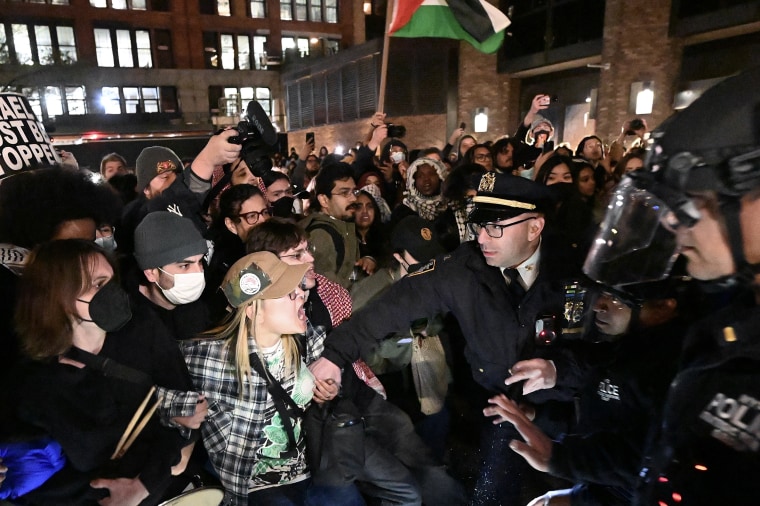
Rising tensions on campuses
- Multiple people were taken into custody tonight at New York University, city officials confirmed, adding that officers responded to the campus after university officials requested police. The number was unclear.
- Police officers arrested protesters who had set up an encampment on Yale University ’s campus in support of the Palestinian cause. In total, 47 students were issued summonses, the university said.
- In New York City, classes at Columbia University were held virtually today amid reports of antisemitic and offensive statements and actions on and near its campus.
- Last week more than 100 Columbia students were arrested after the administration called police to report the students as a danger to campus. NYPD Chief of Patrol John Chell told the student newspaper that there were no reports of violence or injuries and that the students were "peaceful, offered no resistance whatsoever."
- Pro-Palestinian encampments have also been established at the University of Michigan, New York University, the Massachusetts Institute of Technology and California State Polytechnic University, Humboldt.
- The escalated tension comes ahead of this evening's start of the Jewish holiday of Passover.
Coverage on this live blog has ended. Follow the latest news on the campus protests here.
Cal Poly Humboldt in California closes campus after occupation of building
Phil Helsel
California State Polytechnic University, Humboldt, said campus is closed through Wednesday after protesters demonstrating against the war in Gaza occupied Siemens Hall on the campus in Arcata.
“The University is deeply concerned about the safety of the protestors who have barricaded themselves inside the building. The University is urgently asking that the protestors listen to directives from law enforcement that have responded and to peacefully leave the building,” it said in a statement.
It asked the campus community to avoid the area of the building, "as it is a dangerous and volatile situation."
Cal Poly Humboldt has an undergrad enrollment of around 5,800. Humboldt is on the California coast in the northwestern part of the state, near the Oregon border.
MIT students demand school call for cease-fire
The Associated Press
Prahlad Iyengar, an MIT graduate student studying electrical engineering, was among about two dozen students who set up a tent encampment on the school’s Cambridge, Massachusetts, campus Sunday evening. They are calling for a cease-fire and are protesting what they describe as MIT’s “complicity in the ongoing genocide in Gaza,” he said.
“MIT has not even called for a cease-fire, and that’s a demand we have for sure,” Iyengar said.
He also said MIT has been sending out confusing rules about protests.
“We’re out here to demonstrate that we reserve the right to protest. It’s an essential part of living on a college campus,” Iyengar said.
Police 'ready' to remove protesters again at NYU's request: NYPD official
A New York Police Department deputy commissioner tonight shared the letter sent by New York University to the police department asking police to clear Gaza war protesters from its Manhattan campus who refused to leave.
Deputy Commissioner Kaz Daughtry also on social media said that if called upon, the NYPD would do it again.
"There is a pattern of behavior occurring on campuses across our nation, in which individuals attempt to occupy a space in defiance of school policy,” Daughtry wrote on X . “ Rest assured, in NYC the NYPD stands ready to address these prohibited and subsequently illegal actions whenever we are called upon.”
Police took multiple people into custody at NYU’s Gould Plaza while clearing the protesters, the police department said. The number of those arrested, as well as charges, were not available from police early Tuesday.
The letter from NYU posted by Daughtry said the protesters refused to leave and that the university considered them to be trespassers and asked for police help.
Fountain Walker, head of NYU Global Campus Safety, said on social media that the university had given the demonstrators until 4 p.m. to leave. Walker said that barricades had been breached and “we witnessed disorderly, disruptive, and antagonizing behavior that has interfered with the safety and security of our community.”
Columbia to offer hybrid learning for classes on main campus until summer
Classes at Columbia University’s main campus will be hybrid, if the technology permits it, until the end of the spring semester, Provost Angela V. Olinto said in guidance to the Manhattan institution, which has had demonstrations over the war in Gaza.
Faculty with classes equipped with hybrid technology “should enable them to provide virtual learning options to students who need such a learning modality,” she wrote.
Those without should hold classes remotely if students request it, she wrote. The guidance applies to the university’s main campus in Morningside Heights.
There have been large demonstrations over the war in Gaza, and last week over 100 people were arrested there after the university asked the NYPD to remove protesters who occupied a space on campus for more than 30 hours.
Columbia President President Minouche Shafik said in a letter to the university community today that "I am deeply saddened by what is happening on our campus."
"The decibel of our disagreements has only increased in recent days," Shafik said. "These tensions have been exploited and amplified by individuals who are not affiliated with Columbia who have come to campus to pursue their own agendas. We need a reset."
She added that "over the past days, there have been too many examples of intimidating and harassing behavior on our campus" and that antisemitic language will not be tolerated.
Barnard offers suspended students a deal
Barnard College says it has offered the students who were suspended after a 30-hour encampment protest at Columbia last week a way to get off interim suspension.
The students were suspended after police cleared the encampment, set up in support of Gaza, on April 18. New York police arrested more than 100 people.
Barnard President Laura Ann Rosenbury said in a letter today that “the vast majority of the students on interim suspension have not previously engaged in misconduct under Barnard’s rules.”
“Last night, the College sent written notices to these students offering to lift the interim suspensions, and immediately restore their access to College buildings, if they agree to follow all Barnard rules during a probationary period,” Rosenbury said.
If they do, the incident will not appear on transcripts or reportable student disciplinary records, she said.
More than 108 people were arrested during the demonstration, authorities have said.
Students mark Passover with interfaith Seders
Alicia Victoria Lozano
Tavleen Tarrant
BERKELEY, Calif. — Jewish students have organized interfaith Passover Seders at the Gaza solidarity encampments at college campuses across the U.S.
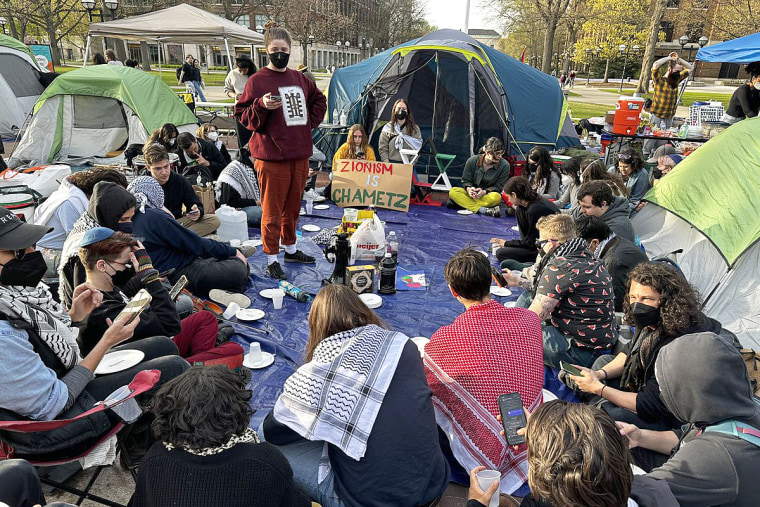
Photos and videos from Columbia University in New York City and the University of Michigan in Ann Arbor were shared online and show students in keffiyeh scarves, surrounded by tents, sitting down to a Passover Seder.
A spokesperson for the Jewish Voice for Peace chapter at the University of California, Berkeley, said the group would also be hosting a Seder.
“A lot of us had other plans for our first-night Seder, but we want to observe Passover with our community,” said a spokesperson for Berkeley’s chapter of Jewish Voice for Peace. “It’s a strange time dealing with the story of Passover.”
N.J. man charged with hate crime in break-in at Rutgers Islamic center
A 24-year-old New Jersey man has been charged with a federal hate crime and accused of breaking into an Islamic center on the campus of Rutgers University this month, federal prosecutors said today.
Jacob Beacher, of Somerset County, is charged with one count of intentional or attempted obstruction of religious practice and one count of making false statements to federal authorities, the U.S. Attorney’s Office for the District of New Jersey said in a statement .
Beacher is accused of breaking into the Center for Islamic Life at the New Brunswick campus around 2:40 a.m. April 10.
He broke through the glass pane of a rear door to unlock it, an FBI special agent wrote in an affidavit associated with the criminal complaint, and then allegedly damaged religious artifacts and stole a Palestinian flag.
Around $40,000 in damage was done, the affidavit says. When he was questioned, Beacher said he was the person in surveillance video near the center, but he denied breaking into the building, the FBI agent wrote.
A suspected motive is not described in the affidavit. A federal public defender listed in court records as representing Beacher did not immediately respond to a request for comment. Court records show Beacher was being held in custody.
U.S. Holocaust Museum calls on colleges to address ‘shocking eruption of antisemitism’ on campuses
The U.S. Holocaust Museum in Washington, D.C., today called on colleges to do more to address what it called a “shocking eruption of antisemitism” on campuses due to tensions over the war in Gaza.
“Demonstrators at Columbia University calling for Jews to return to Poland — where three million Jewish men, women, and children were murdered by the Nazis and their collaborators — is an outrageous insult to Holocaust memory, a failure to appreciate its lessons, and an act of dangerous antisemitism,” the Holocaust Museum said in a statement .
“America is hardly the Third Reich, but the Holocaust teaches the dangers of pervasive societal antisemitism, and awareness of this history must guide our actions in the present,” it said. “Nazi ideology was official state policy, but it found a receptive audience on university campuses based on well established contempt towards Jews.”
In a letter shared yesterday on social media , Chabad at Columbia University said students have had offensive rhetoric hurled at them, including being told to “go back to Poland” and “stop killing children.”
Demonstrators taken into custody at NYU
New York police said they took multiple people into custody at New York University tonight after the university called police and requested the removal of demonstrators.
How many people were taken into custody was not immediately clear. Video from the Manhattan campus showed police with helmets and batons and warning people to leave.
NYU said on social media earlier that protesters had until 4 p.m. to leave Gould Plaza after barricades were breached and after “we witnessed disorderly, disruptive, and antagonizing behavior that has interfered with the safety and security of our community.”
Video tonight showed some demonstrators chanting “NYPD KKK” and “shame on you.”
The NYPD arrested more than 100 people last week at a Gaza protest encampment at Columbia University, also in Manhattan. Columbia had also requested police assistance, officials said.
Jewish students march in solidarity
BERKELEY, Calif. — Jewish students at several college campuses are marching in solidarity with demonstrators calling for an end to the war in Gaza and the divestment of universities from Israeli companies.
At the University of California, Berkeley, in the San Francisco Bay Area, members of the local Jews for Peace chapter camped alongside pro-Palestinian protesters on the Mario Savio steps, named after a founding member of the Free Speech Movement.
A spokesperson for the group, which plans an interfaith Passover Seder tonight, said members are there to "protect" the free speech of anti-war demonstrators.
At the University of Southern California in Los Angeles, Jews for Peace members held signs that read "Jews say no to genocide" and "Anti Zionism is not antisemitism."
Columbia student organizers condemn hate; NYPD says arrests will be made 'if there is a crime'
Doha Madani
Michael Gerber, the deputy New York police commissioner for legal matters, told reporters that officers would step in if crimes were committed on or around Columbia University's campus as some Jewish students express fear for their safety.
He said that includes "harassment or threats or menacing or stalking or anything like that that is not protected by the First Amendment."
Columbia Students for Justice in Palestine, one of the student groups organizing the protest, condemned hate and bigotry in a statement yesterday. The statement blamed nonstudents outside the encampment for inciting harmful incidents over the weekend.
"We have been peaceful," the statement said. "We follow in the footsteps of the civil rights and anti-war movements in our quest for liberation."
Barnard faculty member calls for suspensions to be lifted
Barnard University faculty member Jackie Orr was out with protesters today “because of an unfolding genocide in Gaza” and to show support for students and staff members.
Orr said she was there specifically to join calls for Barnard and associated Columbia University cancel the suspensions of students who were suspended last week after they refused to leave an encampment to show support for Gaza.
The Barnard students have been evicted from their dorms, dining halls and classrooms and all of campus, she said.
“We’re here to demand that the universities immediately unsuspend those students — over 50 students at Barnard are without housing, without access to the classrooms and the faculty, without access to food,” Orr said.
Orr said it is the responsibility of faculty members to stand for students and support the speech of all students.
“The only students whose political speech and activism has been surveyed, targeted and punished have been students who have been speaking in solidarity with Palestine and students who have been speaking and acting forcefully against a genocidal war,” she said.
Barnard and Columbia, across the street from each other in Manhattan, have a partnership and students share facilities.
Patriots owner Kraft says he won’t support Columbia until changes made
New England Patriots owner and Columbia University alumnus Robert Kraft said today he will no longer support the university “until corrective action is taken."

In a statement , Kraft, who graduated from Columbia in 1963, said the university “is no longer an institution I recognize.”
“I am deeply saddened at the virulent hate that continues to grow on campus and throughout our country. I am no longer confident that Columbia can protect its students and staff and I am not comfortable supporting the university until corrective action is taken,” he said.
“It is my hope that Columbia and its leadership will stand up to this hate by ending these protests immediately and will work to earn back the respect and trust of the many of us who have lost faith in the institution,” he said.
Pro-Palestinian student group at Harvard says it has been suspended
Dennis Romero
The Harvard Undergraduate Palestine Solidarity Committee said on its social media platforms today that it has been suspended by the institution.
Harvard's public affairs and communications office did not immediately respond to a request for comment.
The group, also known as Harvard for Palestine, has helped organize protests on campus in solidarity with pro-Palestinian encampments and protests at Columbia University, Yale and the Massachusetts Institute of Technology.
The organization National Students for Justice in Palestine said on X the suspension at Harvard was "intended to prevent students from replicating the solidarity encampments" across the country.
Columbia undergraduate students approve referendums on divestment, ending ties to Tel Aviv
Columbia College, the undergraduate liberal arts school at Columbia University, voted to approve three referendums today calling on the school to divest from Israel as well as cut its ties to Tel Aviv.
According to the student-run Columbia Spectator , the three referendums urged the school to divest funding from Israel, end its dual-degree program with Tel Aviv University and close its Global Center in Tel Aviv. The votes are an indicator of the student's wishes but do not change university policy.
A university spokesperson told the Spectator that the school "welcomes and embraces the Israeli students, faculty, and staff on our campus."
"We are proud of our students and military veterans from Israel and around the world whose experience adds considerable value to the classroom and beyond,” the spokesperson said.
UC Berkeley becomes first West Coast campus to join call for solidarity
BERKELEY, Calif. — Dozens of students gathered on the Savio Steps, named for Mario Savio, the leader of the 1960s Free Speech Movement, at the University of California, Berkeley, today to protest the Israel-Hamas war and the UC system’s investments in companies that do business with Israel.
Protesters said they planned to set up an encampment on campus as UC Berkeley became the first West Coast university to join a call for solidarity among colleges across the country to show their opposition to Israel’s military action in Gaza.
The Savio Steps lead to Sproul Hall, which housed the offices of the chancellor and administrators in the 1960s and were occupied by students from the Free Speech Movement.
The movement is considered the first mass act of civil disobedience on a U.S. campus in the ’60s as students demanded the school lift a ban on on-campus political activity and secure their right to free speech and academic freedom.
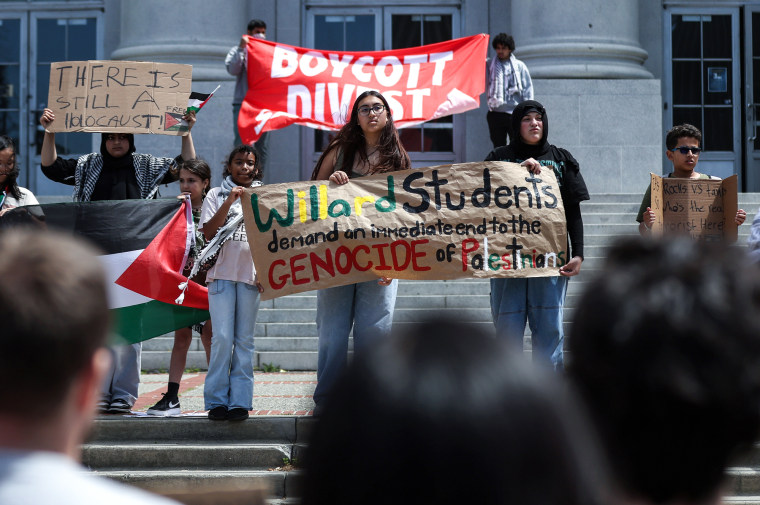
‘We’re going to keep demanding for a free Palestine,’ Yale protester says after arrests
The arrests of 47 students at Yale University this morning will not dissuade people from calling for the Ivy League school to disclose its investments and divest from companies linked to war or weapons, a student vowed today.
“This morning, the cops completely ambushed us. It was 6:40 a.m.; most people were still asleep,” Yale protester Chisato Kimura told NBC Connecticut .
Demonstrators had been gathering on Beinecke Plaza on the campus in New Haven all last week, and Kimura said that when their demands of Yale went unanswered, they began taking up space with people and tents on the plaza over the weekend.
“We’re going to keep demanding for a free Palestine,” Kimura said. She said some of the people arrested had already returned to protests by this afternoon.
Kimura said that the protesters want Yale to make it clear that it is not investing in ways connected to weapons or war but that Yale has refused their request for disclosure. “We don’t want to be complicit as students,” she said.
“I don’t know what Yale was thinking when they arrested the students, but if they thought they were going to shut us up or make us quiet — I mean, it completely backfired,” Kimura told NBC Connecticut as a rally was being held.
Yale said in a statement that it repeatedly warned students that continuing to violate university policies could result in action that included arrest and that it tried to negotiate with students to leave the plaza without success. It said that negotiations ended at 11:30 p.m. and that today Yale issued summonses to people who refused to leave voluntarily.
Yale also said that it "became aware of police reports identifying harmful acts and threatening language used against individuals at or near the protest sites," some by people from Yale and some from outsiders. Several hundred people were at the plaza over the weekend, the university said.
Michigan students establish encampment in heart of campus
Protesters at the University of Michigan renewed their criticism of Israeli warfare today by erecting an encampment in the heart of the Ann Arbor campus, on the Diag, or Diagonal Green.
The protest was organized in part by the group Transparency Accountability Humanity Reparations Investment Resistance, better known as the TAHRIR Coalition.
Earlier in the day students marched along the Diag chanting, "If you don't get no justice, we don't get no peace."
The coalition's main goal is university divestment from companies or funds that support Israel's war in Gaza, home to a population that has faced mass displacement since Hamas militants' Oct. 7 surprise attack on Israel.
The university has addressed the demand previously, with Regent Michael Behm saying in late March: "The endowment has no direct investment in any Israeli company. What we do have are funds that one of those companies may be part of a fund. Less than 1/10 of 1% of the endowment is invested indirectly in such companies."
University of Michigan police did not immediately respond to a request for information about its response to today's actions on campus.
Biden condemns antisemitic protests, 'those who don’t understand what’s going on with the Palestinians'
Alexandra Bacallao
Zoë Richards
Reporters asked Biden in Triangle, Virginia, this afternoon for his message to protestors and whether he condemned antisemitic demonstrations on college campuses.
“I condemn the antisemitic protests; that’s why I’ve set up a program to deal with that," Biden told reporters.
“I also condemn those who don’t understand what’s going on with the Palestinians,” he added.
The comment appeared to be a reference to an effort announced last year to initiate partnerships between the departments of Justice and Homeland Security and campus law enforcement agencies to track hate-related threats and supply schools with federal resources to combat a rise in antisemitism.
Rep. Ilhan Omar praises solidarity movement on campuses
Rep. Ilhan Omar, D-Minn., praised the solidarity emerging as campuses across the country protest the Israel-Hamas war after faculty at Columbia University staged a walkout over the administration’s crackdown.
“On Thursday, Columbia arrested and suspended its students who were peacefully protesting and have now ignited a nationwide Gaza Solidarity movement,” Omar wrote on X. “This is more than the students hoped for and I am glad to see this type of solidarity.”
Omar’s daughter, Isra Hirsi, was arrested participating in the protests and suspended from Columbia’s nearby sister school, Barnard College. Omar said she was “enormously proud” of her daughter.
Hirsi told MSNBC she believed the school targeted for suspension students who were speaking to the media. She denied the protest encampment on campus was threatening, describing it as a “beautiful” community and saying students held Shabbat during that time.
Columbia courses go virtual as protests continue; faculty stage walkout in support
Students at Columbia University are on their sixth day of camping out on the school's South Lawn, a re-creation of an anti-war demonstration students held in 1968 opposing U.S. involvement in the Vietnam War.
Columbia President Nemat “Minouche” Shafik said today that classes would be held virtually and that school leaders would be coming together to discuss a way to bring an end to “this crisis.” The original 1968 protests lasted roughly a week before police forcibly removed students in full-scale police riots , alumnus Oren Root described in an opinion essay.
A large group of faculty members staged a walkout today in support of students. Students were arrested last week when the school administration asked police to remove students, citing a threat to safety, though NYPD Chief of Patrol John Chell told the Columbia Spectator that the protestors were peaceful and "offered no resistance whatsoever."
The Columbia encampment has inspired similar demonstrations at other campuses, including New York University, Yale University and the University of California, Berkeley. Protesters have also gathered outside the gate to Columbia University, where antisemitic incidents and aggressive crowds have been reported.
Pro-Palestinian supporters arrested at encampment on Yale plaza
Marlene Lenthang
Police officers today arrested protesters who had set up an encampment on Yale University’s campus in support of the Palestinian cause, one of a growing number of American universities where there have been demonstrations surrounding the Israel-Hamas war.
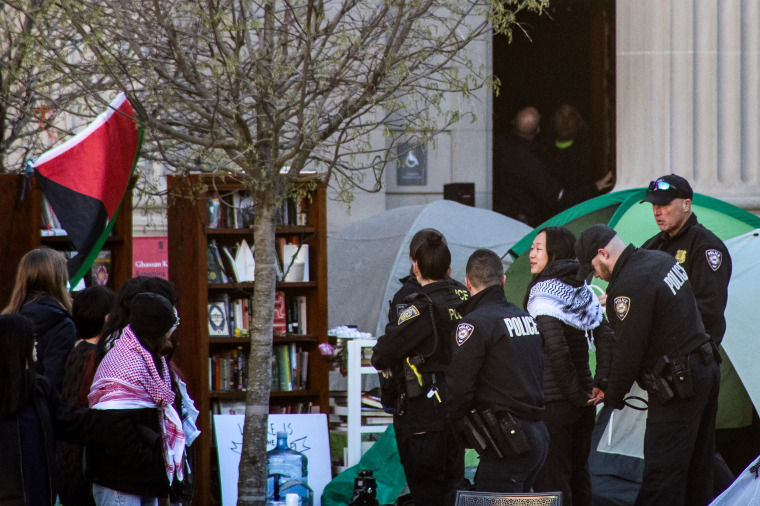
Protesters had been on their third night of camping out to urge Yale to divest from military weapons manufacturers, the Yale Daily News reported.
Officers gathered at the protest site at Beinecke Plaza shortly before 7 a.m. Monday and were seen approaching the encampment and “flipping up the entrances to the tents,” the school paper wrote on X.
Then officers issued a warning for students and journalists to leave or they’d be arrested. Minutes later, the school paper wrote on X that police were arresting people.
In total, 47 students were issued summonses, Yale said in a statement today.
Read the full story here.
A high-energy crowd at NYU
People gathered in front of New York University's Stern School of Business to protest on Gould Plaza this afternoon. The crowd maintained high energy while chanting “free Palestine." The group also held a communal prayer and observed a moment of silence for those who have died in Gaza.
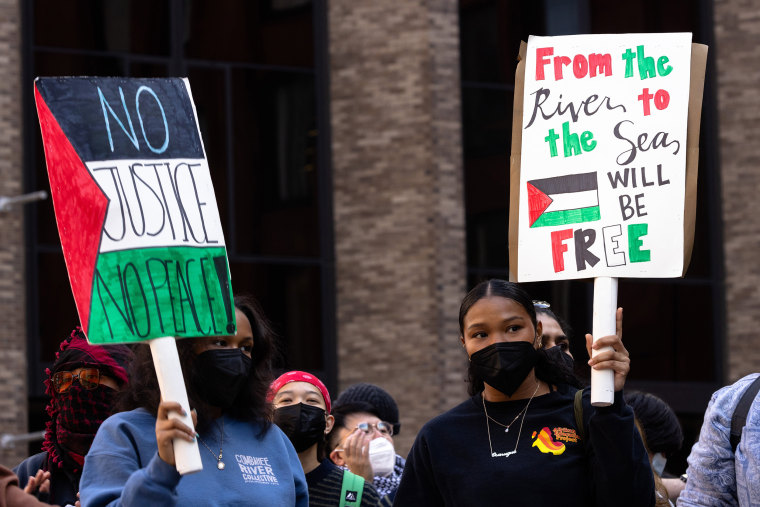
New York police were on the scene.
A few people gathered across the street, with at least one person holding an Israeli flag.
Karely Perez, an NYU alumna, said she joined the protest to show her support for the student organizations behind the encampment.
“Once the students start getting mad, things start to change,” she said.
Perez said she was proud of the students and added that although the encampments on university campuses are new, pro-Palestinian activism has always existed at schools like NYU.

IMAGES
VIDEO
COMMENTS
Level 4: Do Not Travel: January 22, 2024: Worldwide Caution: Caution: October 19, 2023: Afghanistan Travel Advisory: Level 4: Do Not Travel: December 18, 2023: Albania Travel Advisory: ... Subscribe to get up-to-date safety and security information and help us reach you in an emergency abroad.
Places With a Level 4 Travel Advisory. These are the primary areas the U.S. government says not to travel to right now, in alphabetical order: Jump to Place: Afghanistan: The Central Asian country ...
Planning to travel abroad? Check out the interactive map from the U.S. Department of State that shows the travel advisories for different countries and regions. You can zoom in and out, click on the icons, and get the latest information on health, safety, and entry requirements. The interactive map is a useful tool for travelers who want to stay informed and prepared.
Office of the Spokesperson. April 19, 2021. State Department Travel Advisory Updates. In order to provide U.S. travelers detailed and actionable information to make informed travel decisions, the Department of State regularly assesses and updates our Travel Advisories, based primarily on the U.S. Centers for Disease Control and Prevention (CDC ...
Find which ones across the United States have implemented travel restrictions to curb the spread of COVID-19. Print Aug. 7, 2020, 4:27 PM UTC / Updated Dec. 17, 2020, 10:28 PM UTC
The U.S. State Department has added at least 116 countries this week to its "Level Four: Do Not Travel" advisory list, putting the UK, Canada, France, Israel, Mexico, Germany and others on the ...
The U.S. State Department has vastly expanded its "Do Not Travel list," issuing new Level 4 advisories for more than 115 countries and territories this week. The agency cites "ongoing risks due to ...
The agency said about 80% of countries will now carry the "Do not travel'' label, a Level 4. Today, just 34 of 209 countries, or about 16% are rated a Level 4. Nearly 150 countries, or about 70% ...
Global Travel Risk Map. Daily updated risk assessment for all countries. You should avoid any trips. A high warning index is a sound indicator of potential harm to your health and well-being. Travel should be reduced to a necessary minimum and be conducted with good preparation and high attention. Medium Risk (index value: 2.5 - 3.5)
The ridiculous irony, of course, is that the United States would easily make its own "Do Not Travel" list. The U.S. is currently recording 42.4 new daily Covid-19 cases per day, per 100,000 ...
Last year, the department issued a blanket "Level 4: Do Not Travel" advisory, the first of its kind, to urge Americans not to travel overseas as the coronavirus swept around the world. The notice ...
Every Monday, the Centers for Disease Control and Prevention delivers news for travelers — namely, which destinations they should avoid because of covid-19. The agency has given more than 130 ...
The advisory tells Americans "do not travel" to the five Mexican coastal states of Sinaloa, Colima, Michoacán, Guerrero, and Tamaulipas. It also suggests exercising "increased caution" or "reconsider travel" to other parts of the country. Here's a map of Mexico's five states the U.S. deemed most dangerous, as well as the ...
Under the new system, countries will be placed on the agency's Level 4 "do not travel" list only if there are extreme pandemic-related health concerns. On April 20, no countries were designated a Level 4 on the new list. Just last week, there were 89 countries on the U.S. Centers for Disease Control and Prevention's (CDC's) Level 4 ...
However, if the CDC raises a country's COVID-19 THN to a Level 4, the State Department's Travel Advisory for that country will also be raised to a Level 4: Do Not Travel due to COVID-19. This update will leave approximately 10% of all Travel Advisories at Level 4: Do Not Travel. This 10% includes Level 4 Travel Advisories for all risk ...
The more recent map is here. Even as travel is discouraged to all of Mexico because of the COVID-19 pandemic, the U.S. State Department continues to update its warnings concerning kidnappings and ...
January 11, 2018 1:30 PM EST. T he State Department issued new travel warnings for parts of Mexico on Wednesday, advising American travelers to entirely avoid five regions due to crime. The ...
The map above shows the advisory level for each Mexican state. Level 4: The six states with the "do not travel" advisory, because of kidnappings and other crimes, are the northern border state ...
1. NumaPomp • 5 yr. ago. Pittsburgh is actually one of the most livable cities in the world. It's ranked by European tourists as being on of the top 10 cities for restaurants. It's ranked as one of the greenest cities in the world. Surprised to learn that its got a perception in Minnesota of dying. 19.
Travel Advisory Update for Mexico . Do not travel to Mexico due to COVID-19. Read the Department of State's COVID-19 page before you plan any international travel. The Centers for Disease Control and Prevention (CDC) has issued a Level 4 Travel Health Notice for Mexico due to COVID-19, indicating a very high level of COVID-19 in the country. Your risk of contracting COVID-19 and developing ...
Travel Advisory. January 26, 2024. The Bahamas - Level 2: Exercise Increased Caution. C. Updated with additional water safety information. Exercise increased caution in The Bahamas due to crime . Country Summary : The majority of crime occurs on New Providence (Nassau) and Grand Bahama (Freeport) islands. In Nassau, practice increased vigilance ...
Two of four Americans abducted in Mexico last week when their van was caught in a shootout were found dead, a top Mexican official said Tuesday. The two others have been found alive, with one ...
The new patterns really emerge when comparing international travel trends to 2019. For example, Central America received 50% more U.S. visitors in March 2024 compared with March 2019. Nearly 1.5 ...
Dozens of activists denouncing Israel's war in Gaza remain camped out on the West Lawn of Columbia University on Friday, a day after New York City police arrested more than 100 people on ...
Last September, the U.S. Embassy in the Bahamas issued a travel alert warning Americans after a tourist from Indiana got an eight-month prison sentence for possession of ammunition.. The alert says: "We wish to remind all travelers that declaring a weapon in your luggage with an airline carrier does not grant permission to bring the weapon into TCI [Turks and Caicos Islands] and will result in ...
Barnard College says it has offered the students who were suspended after a 30-hour encampment protest at Columbia last week a way to get off interim suspension. The students were suspended after ...